Discover The Prostate Health Podcast
The Prostate Health Podcast

The Prostate Health Podcast
Author: Garrett Pohlman, MD
Subscribed: 53Played: 1,141Subscribe
Share
Description
So the big question is this: how can men and those who care for them better educate themselves regarding prostate health, the conditions that affect the prostate, and the latest technology in managing these conditions? That is the question and this podcast will provide the answers. My name is Garrett D. Pohlman, MD, founder and host of The Prostate Health Podcast. On a weekly basis I will be chatting with experts, innovators, and leaders in the field of Urology – sharing useful information with the general public to improve their lives and increase their overall health.
112 Episodes
Reverse
We are excited to share the highly anticipated second part of our riveting technology highlights podcast series, broadcasting straight from the heart of the annual American Urologic Association meeting in Chicago, Illinois! The world of BPH treatment options is booming with innovation! Get ready for an exclusive sneak peek into several upcoming technologies Dr. Pohlman discovered while scouring the exhibition hall at the American Urologic Association annual meeting. This week, we focus on the incredible advancements in BPH technology and share insightful interviews with representatives from pioneering companies and urologists utilizing these cutting-edge tools. While we will only scratch the surface of the fan favorites at this year's conference, you can rest assured we will keep you up to speed on other ground-breaking technologies throughout the year! Get ready to stay ahead of the curve on our podcast journey! In this episode, we dive into the intriguing world of cutting-edge solutions for an enlarged prostate, known as benign prostatic hyperplasia or BPH. Prepare yourself for an exclusive glimpse behind the scenes as we uncover the latest advancements that will revolutionize prostate management. Whether you are concerned about your own health or that of a loved one, this is an episode you cannot afford to miss! Join us as we unlock the mysteries of prostate health and equip you with the knowledge to navigate this crucial aspect of well-being! Disclaimer: The Prostate Health Podcast is for informational purposes only. Nothing in this podcast should be construed as medical advice. By listening to the podcast, no physician-patient relationship has been formed. For more information and counseling, you must contact your personal physician or urologist with questions about your unique situation. Show highlights: Dr. Pohlman is already utilizing Optilume BPH for managing urethral strictures in his practice. He explains how it works. Dr. Pohlman talks with Ian Schorn, Vice President of Clinical Affairs at Urotronic, about using Optilume for managing BPH. Ian Schorn explains something unique about Optilume BPH. The clinical data on the Optilume device has shown very good outcomes in terms of flow rate improvement after treatment. Urotronic hopes to get official FDA approval within the next few months for its Optilume technology. Dr. Pohlman shares the secret to the successful results of Optilume. Dr. Pohlman describes the new stent devices now emerging for BPH and explains which ones will most likely rise to the top, in terms of outcomes and urologist preference. Dr. Pohlman talks to the CEO of Butterfly Medical, Idan Geva, about their new technology for BPH. How does Butterfly Medical's new nitinol implant compare with other available technologies? What is Aquablation therapy? Dr. Lewis Kriteman, from Georgia Urology, discusses the benefits of Aquablation therapy and explains how it compares with the procedures he used before. Dr. Pohlman was the first urologist in the Seven State Region, including Nebraska, Kansas, Iowa, Missouri, Montana, Wyoming, and Colorado, to offer Aquablation. It is encouraging and exciting to see the continuous advancements in technology and techniques for managing BPH! Today's tantalizing glimpse into emerging technologies at the AUA annual meeting is just the beginning. We will delve even deeper into these breakthroughs in future episodes. Stay connected by subscribing to our podcast to ensure you are always in the loop, and get ready for a journey of knowledge and discovery as we explore the forefront of BPH management! Links: Follow Dr. Pohlman on Twitter and Instagram - @gpohlmanmd Get your free What To Expect Guide (or find the link on our podcast website) Join our Facebook group Follow Dr. Pohlman on Twitter and Instagram Go to the Prostate Health Academy to sign up. You can access Dr. Pohlman's free mini webinar, where he discusses his top three tips to promote men's prostate health, longevity, and quality of life here. Urotronic Butterfly Medical Georgia Urology
With every passing year, we see new technologies emerge to equip urologists with better tools for combating prostate cancer. This year's annual meeting of the American Urological Association in Chicago was no exception! We are excited to take you behind the scenes today for a closer look at some of the new and upcoming technologies for diagnosing and treating prostate cancer. Prostate cancer is one of the most common cancers. But it is also one that has seen remarkable progress in technology. Dr. Pohlman has had first-hand experience of how innovative developments in diagnosis and treatment have revolutionized how this disease gets treated. For today's episode, he interviews Dr. Amit Vohra, the President and CEO of Promaxo, Michael Waidler, the Area Business Director for Palette Life Sciences, and Dr. Fernando Bianco, from the Urology Specialist Group, in Miami Lakes, Florida, at the AUA meeting this year, about the latest technologies in the prostate cancer arena. Sit back, relax, and get ready to be amazed by what's available right now for the diagnosis and treatment of prostate cancer! Disclaimer: The Prostate Health Podcast is for informational purposes only. Nothing in this podcast should be construed as medical advice. By listening to the podcast, no physician-patient relationship has been formed. For more information and counseling, you must contact your personal physician or urologist with questions about your unique situation. Show highlights: At Promaxo, they are commercializing a portable office-based MRI for doing interventions of prostate biopsies in addition to treatments. What makes Promaxo unique when compared with other available technologies? Dr. Pohlman will now offer the Promaxo technology to patients in his practice. He explains how it works. Dr. Pohlman talks to Michael Waidler from Palette Life Sciences about a new rectal spacer to help protect healthy tissue from radiation beam exposure and reduce the long-term side effects of radiation therapy for prostate cancer. What makes Barrigel unique from a urologist and patient perspective? What do rectal spacers do? The advantage Barrigel has over other rectal spacers. Dr. Fernando Bianco highlights the benefits of targeted therapy versus active surveillance. Innovation drives progress! The advancements in prostate cancer technology are a true testament to that. Today's glimpse into the AUA annual meeting has only scratched the surface of what is to come. So, subscribe to our podcast to stay up-to-date on the latest prostate cancer diagnosis and treatment developments, and don't forget to tune in to our next episode, which will be Part Two from the AUA annual meeting in Chicago, where we will explore the exciting new technology for men with an enlarged prostate or BPH. Thanks for joining us, and see you next time! Links: Follow Dr. Pohlman on Twitter and Instagram - @gpohlmanmd Get your free What To Expect Guide (or find the link on our podcast website) Join our Facebook group Follow Dr. Pohlman on Twitter and Instagram Go to the Prostate Health Academy to sign up. You can access Dr. Pohlman's free mini webinar, where he discusses his top three tips to promote men's prostate health, longevity, and quality of life here. Promaxo Barrigel The Urology Specialist Group
We are excited to partner with GoPath Diagnostics for today's podcast and have Dr. Paul Yonover join us on the show to bring listeners up to speed on the newly-available comprehensive germline test called ProstateNow that addresses all patient needs specific to prostate cancer. Dr. Paul Yonover is a board-certified urologist who completed his residency programs in surgery and urology at Loyola University Medical Center. Dr. Yonover has done extensive research in urology and has published in numerous clinical journals. He is the Chief Analytics Officer and Director of Clinical Research for Uro Partners in Chicago, Illinois. In addition, he is currently a Clinical Assistant Professor of Urology at the University of Illinois Chicago College of Medicine and a Chief of Urology at Advocate Illinois Masonic Hospital and Amita Presence St. Joseph Hospital. Tune in to find out what the ProstateNow test is, how it works, who can benefit from it, and how urologists are incorporating it into their clinical practices! Disclaimer: The Prostate Health Podcast is for informational purposes only. Nothing in this podcast should be construed as medical advice. By listening to the podcast, no physician-patient relationship has been formed. For more information and counseling, you must contact your personal physician or urologist with questions about your unique situation. Show highlights: Dr. Yonover explains how he approaches germline testing related to prostate cancer in his practice. Dr. Yonover explains the importance of identifying the rare pathogenic mutations that are risk factors for disease. Why is family history a risk factor for prostate cancer? What should patients be advised to do if they have a pathogenic mutation? Dr. Yonover explains what rare pathogenic mutations are. Some of the historic barriers urologists and oncologists have had in integrating prostate cancer genetic testing into their practices. How did Dr. Yonover's practice overcome the barriers and incorporate germline testing? Dr. Yonover dives into what the ProstateNow test is and how it works. Dr. Yonover shares some important things to bear in mind regarding germline testing. Links: Follow Dr. Pohlman on Twitter and Instagram - @gpohlmanmd Get your free What To Expect Guide (or find the link on our podcast website) Join our Facebook group Follow Dr. Pohlman on Twitter and Instagram Go to the Prostate Health Academy to sign up. You can access Dr. Pohlman's free mini webinar, where he discusses his top three tips to promote men's prostate health, longevity, and quality of life here. GoPath Diagnostics UroPartners
Would you like to help end prostate cancer and improve the lives of men and their families by advancing research and inspiring action? The ZERO RUN/WALK season is coming up! Today, we are excited to welcome Tracy Cameron, ZERO's Midwest Chapter Manager, to talk about the history and purpose of Zero's RUN/WALK events and share the information about the upcoming Zero RUN/WALK season. Dr. Pohlman is grateful to have the Zero Organization available for his patients and their loved ones! About a year ago, he and Tracy started working as the Prostate Health Podcast at Kearney Urology Center PC, partnered with Zero in hosting the first annual prostate cancer RUN/WALK in Kearney, Nebraska. This year's RUN/WALK event is coming up on Saturday, May 21st, at 9 am at Yanney Heritage Park. Stay tuned to find out how you can join the cause and assist in fighting prostate cancer! Disclaimer: The Prostate Health Podcast is for informational purposes only. Nothing in this podcast should be construed as medical advice. By listening to the podcast, no physician-patient relationship has been formed. For more information and counseling, you must contact your personal physician or urologist with questions about your unique situation. Show highlights: Tracy talks about the history and purpose of Zero's RUN/WALK. Other RUN/WALKs will be taking place in the Midwest territory, in addition to the upcoming one in Kearney. To sign up for the race, log onto the Zero Cancer website and click on the RUN/WALK icon in the upper right-hand corner to find a list of all the RUN/WALKs happening countrywide. Click on your city and register there. (Sign up here to join us in Kearney, Nebraska, on Saturday, May 21st.) You can sign up for the RUN/WALK as an individual or a team. You can also make a donation or volunteer. Tracy talks about the awards and recognition for the top fundraisers for the race. The registration for RUN/WALK events is free, and the race shirts cost $50. (You can fundraise to cover the cost of your race shirt.) Tracy explains how the virtual option for the race will work. A national RUN/WALK virtual event will take place in September. Tracy talks about other ways to get involved besides participating in the race. How will the donations from event sponsors be used? Links: Follow Dr. Pohlman on Twitter and Instagram - @gpohlmanmd Get your free What To Expect Guide (or find the link here, on our podcast website) Join our Facebook group Follow Dr. Pohlman on Twitter and Instagram Go to the Prostate Health Academy to sign up for the wait-list for our bonus video content. You can access Dr. Pohlman's free mini webinar, where he discusses his top three tips to promote men's prostate health, longevity, and quality of life here.
Men and their loved ones often ask what can be done to decrease their risk of getting aggressive prostate cancer and improve their overall outcomes if they do end up getting prostate cancer. In honor of September's Prostate Cancer Awareness Month, I'm happy to present you with one of our most popular episodes from the archives, which features Dr. Stephen Freedland, a prostate cancer expert, and focuses on the role that diet and lifestyle play in the development and progression of prostate cancer. He will bring you up to speed today with all you need to know. Stay tuned for more! Dr. Stephen Freedland is a true visionary on the role of lifestyle and diet in prostate cancer. He wears many different hats. He is the Director of the Center for Integrated Research in Cancer and Lifestyle, Associate Director of Cedars-Sinai Cancer for Education and Training, Professor in the Division of Urology at the Cedars-Sinai Medical Center in Los Angeles, and a staff physician at the Durham VA Medical Center. His approach to cancer prevention and awareness focuses on treating the whole patient, not just the disease, by combining traditional western medicine with complementary holistic interventions. His research interests include the role of diet, lifestyle, and obesity in prostate cancer development and progression, prostate cancer amongst racial groups, and restratification for men with prostate cancer. He has published over 600 studies. He sits on the editorial board for Cancer Prevention Research, European Urology, International Journal of Urology, and Nature Reviews Urology, among others. He also serves as Editor-in-Chief for Prostate Cancer and Prostatic Diseases. He completed his urology residency training at UCLA and a fellowship in urologic oncology at Johns Hopkins. Before joining Cedars-Sinai, he was at Duke University as an associate professor in the Division of Urology. Disclaimer: The Prostate Health Podcast is for informational purposes only. Nothing in this podcast should be construed as medical advice. By listening to the podcast, no physician-patient relationship has been formed. For more information and counseling, you must contact your personal physician or urologist with questions about your unique situation. Show highlights: The link between obesity and aggressive prostate cancer. Men could potentially reduce the risk of getting prostate cancer by losing weight. Dr. Freedland talks about whether there is a particular diet that works best for everyone with prostate cancer. The truth regarding the association between a high-fat diet and the risk of getting prostate cancer. Avoiding sugar is the only area where all diets concur. Dr. Freedland recommends following whole food diets. What we know at this point about links to sugar and prostate cancer. The biggest challenge that prostate cancer patients face with their diet. Dr.Freedland shares some tips and advice for sticking to a healthy diet. What Dr. Freedland recommends for his patients in terms of exercise and habits for a healthy prostate. Links: Follow Dr. Pohlman on Twitter and Instagram - @gpohlmanmd Get your free What To Expect Guide (or find the link here, on our podcast website) Join our Facebook group Follow Dr. Pohlman on Twitter and Instagram Go to the Prostate Health Academy to sign up for the wait-list for our bonus video content. You can access Dr. Pohlman's free mini webinar, where he discusses his top three tips to promote men's prostate health, longevity, and quality of life here.
September is Prostate Cancer Awareness Month. Men often ask Dr. Pohlman about when it will be the right time for them to start getting checked for prostate cancer. For this episode, we circle back to Episode 32, where Dr. Matt Cooperberg, from the University of California, San Francisco, spoke about prostate cancer screening. The way that men get screened for prostate cancer continues to evolve. Today, Dr. Cooperberg answers all your burning questions and explains how you can be smarter when it comes to detecting prostate cancer. Stay tuned for more! Dr. Cooperberg earned his MD and MPH degrees at Yale University, and he completed his residency in urology and fellowship in urologic oncology at UCSF. At the end of his training, Dr. Cooperberg joined the faculty at UCSF, where he maintains busy clinical practices at the UCSF Hellen Diller Family Comprehensive Cancer Center and the San Francisco VA Medical Center. He has written or contributed to over 350 research articles. Through his clinical and research efforts, he continues to lead the way for a paradigm shift for smarter prostate cancer screening with rational and risk-stratified prostate cancer screening, as well as appropriate risk-stratified treatment strategies. Stay tuned for more! Disclaimer: The Prostate Health Podcast is for informational purposes only. Nothing in this podcast should be construed as medical advice. By listening to the podcast, no physician-patient relationship has been formed. For more information and counseling, you must contact your personal physician or urologist with questions about your unique situation. Show highlights: Dr. Cooperberg reviews how commonly prostate cancer occurs. How prostate cancer is detected. How prostate cancer screening has evolved over the years. Dr. Cooperberg explains what smart prostate screening is. When low-risk prostate cancer gets found with smart screening, it does not get treated. The benefits of smart prostate screening. The tests Dr. Cooperberg prefers for finding more information and deciding whether or not to do a biopsy. The age at which Dr. Cooperberg typically recommends men start undergoing prostate cancer screening. How long do men need to keep on getting screened for prostate cancer as they get older? Dr. Cooperberg describes the patients he views as ideal candidates for active surveillance. Dr. Cooperberg discusses his currently preferred active surveillance protocol. Links: Follow Dr. Pohlman on Twitter and Instagram - @gpohlmanmd Get your free What To Expect Guide (or find the link here, on our podcast website) Join our Facebook group Follow Dr. Pohlman on Twitter and Instagram Go to the Prostate Health Academy to sign up for the wait-list for our bonus video content. You can access Dr. Pohlman's free mini webinar, where he discusses his top three tips to promote men's prostate health, longevity, and quality of life here.
Today, we are bringing Episode 30 back out of the vault for an encore. The way that men can be helped to overcome the symptoms of an enlarged prostate continues to transform with minimally invasive surgical techniques. We are excited to bring back our conversation with urologist, Dr. Dean Elterman today. He will bring you up to speed with aquablation and explain how water power can be used to help men with the symptoms of an enlarged prostate. Stay tuned for more! Dr. Elterman completed residency training in urologic surgery at the University of Toronto. He then completed a fellowship in Voiding Dysfunction, Neuro-Urology, Female Urology, and Pelvic Reconstruction at Memorial Sloan-Kettering Cancer Center, New York-Presbyterian Hospital, and Weill Cornell Medical College in New York City. He has worked in the area of men's health and survivorship at the Iris Cantor Men's Health Center at New York-Presbyterian Hospital/Weill Cornell Medical College and the University of Toronto. He is the Medical Director of the Prostate Cancer Rehabilitation Clinic at Princess Margaret Hospital Cancer Centre. Dr. Elterman is a true innovator in men's health and continues to embrace the integration of minimally invasive surgical therapies in the management of an enlarged prostate. Be sure to listen in today to find out how water can be used for the treatment of enlarged prostate. We have taken a short break from recording any new interviews for the podcast until Season 3 arrives. We continue circling back to bring some of the more popular episodes back out of the vault. As we get closer to Season 3, Dr. Pohlman continues working behind the scenes to line up some tremendous guests for the show. Over the last month, Dr. Pohlman has enjoyed getting to know the new members of the Prostate Health Academy following the founding members' launch. The Prostate Health Academy is now open to the public, so if you have any questions about the Academy and how it can benefit you in your prostate journey, feel free to email Dr. Pohlman at garrett.pohlmanmd@prostatehealthacademy.com. Disclaimer: The Prostate Health Podcast is for informational purposes only. Nothing in this podcast should be construed as medical advice. By listening to the podcast, no physician-patient relationship has been formed. For more information and counseling, you must contact your personal physician or urologist with questions about your unique situation. Show highlights: Dr. Elterman explains how commonly men suffer from BPH, or enlargement of the prostate. Some of the symptoms of an enlarged prostate. Dr. Elterman explains how an enlarged prostate affects a man's quality of life. The long-term impact that an enlarged prostate can have on a man's bladder health.Some of the minimally invasive therapies that Dr. Elterman is currently utilizing in his practice. Dr. Elterman explains how unique aquablation technology works. What sets aquablation apart from the other therapies for an enlarged prostate. Some of the history and background of aquablation therapy. Dr. Elterman describes the appropriate candidate for aquablation therapy. Aquablation therapy works well for preserving men's sexual function. The short time it takes to perform the aquablation procedure sets it apart from other therapies. Some more advantages of aquablation therapy. What men can expect from the aquablation procedure in terms of pain and recovery time. How quickly men can expect to see an improvement after having aquablation therapy. The potential risks of the aquablation procedure. SPECIAL NOTE: One of the benefits Dr. Pohlman has gained from running this podcast is that it has challenged him to make sure that he is staying up on the latest technology available for prostate health and incorporating many of those new technologies into his clinical practice. His practice has been an early adopter of several new options for men. That has allowed his group to be one of the first in the region to offer many of them. After airing Episode 30 about aquablation, Dr. Pohlman has continued to research the feasibility of bringing that technology to his practice to add it to his range of BPH options. He feels that aquablation will have a role in treating a subset of men with BPH. The men that will best benefit from this option might remain a moving target as Dr. Pohlman becomes more comfortable with the technology. Dr. Pohlman feels that aquablation may be an option for many patients with very large prostates, who might not be the best candidates for the MIST therapies, including UroLift, Rezum, and Turp, which are currently being treated with robotic simple prostatectomy. While, for many of these men, it may take the place of simple robotic prostatectomy, Dr. Pohlman is not sure that robotic simple prostatectomy will go away completely, and some of those men will still benefit from that option, especially those with very large prostates or very large bladder stones as well as very large prostates that can currently be treated at the same time. We will circle back again a year from now with an update on where we are currently. For some of the smaller prostates that are not candidates for in-office procedures like UroLift or Rezum, that are being treated with options such as transurethral resection of the prostate or TURP, Dr. Pohlman wonders if aquablation will take the place for some of those patients too. With newer techniques, such as ejaculate preserving TURP, which we recently covered in Episode 75, we are now getting close to matching some of the outcomes of aquablation in terms of ejaculate preservation. Dr. Pohlman is curious to see how the outcomes of aquablation compare to ejaculate preserving TURP as more outcomes data gets collected. Links: Follow Dr. Pohlman on Twitter and Instagram - @gpohlmanmd Get your free What To Expect Guide (or find the link here, on our podcast website) Join our Facebook group Follow Dr. Pohlman on Twitter and Instagram Go to the Prostate Health Academy to sign up for the wait-list for our bonus video content. You can access Dr. Pohlman's free mini webinar, where he discusses his top three tips to promote men's prostate health, longevity, and quality of life here.
Vasectomy is a minimally invasive procedure and an excellent form of birth control for couples. There are, however, many myths and misconceptions that surround a vasectomy, making some men feel reluctant to have it done. For that reason, Dr. Pohlman felt it vital to address those myths once again. Today, we are bringing Episode 11 back out of the vault. In that episode, the board-certified urologist, Dr. Jay Sandlow joined us to debunk ten of the more common myths regarding a vasectomy. One of those myths is that a vasectomy is the same as castration. That will be one of the ten myths that we will debunk in this episode. Stay tuned for more! Dr. Sandlow is a fellowship-trained specialist in male infertility. He completed his urology residency and fellowship at the University of Iowa. He currently serves as Vice-chair and Professor for the Department of Urology at the Medical College of Wisconsin, in Milwaukee. He has experience in microsurgery as well as minimally invasive treatments for male contraception. He was a member of the Vasectomy Guidelines Taskforce, as well as serving on the current group updating the guidelines. He has also taught the AUA vasectomy course for the last seven years, as well as completing two vasectomy missions in the Philippines. Be sure to tune in today, to hear Dr. Sandlow bust ten of the more common myths about vasectomy. NOTE: We have taken a short break from recording any new interviews for the podcast until the start of Season 3. We are bringing another more popular episode out of the vault today. Throughout this time, Dr. Pohlman has been working behind the scenes to line up some tremendous guests for the show. There was a great response from our listeners for the solo shows we released during Season 2, so we will be bringing out more solo episodes for Season 3. Disclaimer: The Prostate Health Podcast is for informational purposes only. Nothing in this podcast should be construed as medical advice. By listening to the podcast, no physician-patient relationship has been formed. For more information and counseling, you must contact your personal physician or urologist with questions about your unique situation. Show highlights: In his career, Dr. Sandlow has performed about 7000 vasectomies. Testosterone levels do not change after a vasectomy. Men continue to make sperm after a vasectomy. Dr. Sandlow explains how that happens. Vasectomy reversals can work. Dr. Sandlow explains what happens with an epididymal blowout. Dr. Sandlow explains why vasectomy is not the same as castration. After a vasectomy, there is very little decrease in the amount of ejaculate. As men age, their amount of ejaculate decreases. It's easier, quicker, less invasive, less expensive, and more effective for a man to have a vasectomy than it is for a woman to have her tubes tied. Dr. Sandlow explains why a vasectomy does not affect a man's ability to get an erection. Why you should not regard a vasectomy as temporary. Dr. Sandlow explains why vasectomies are not effective immediately. Dr. Sandlow discusses the current American Urology Guideline's stance regarding vasectomy and prostate cancer. Although vasectomy is not a perfect contraceptive, it's an excellent option for many men. Over the last month, following our founding member's launch, Dr. Pohlman has enjoyed getting to know the new members of the Prostate Health Academy. The Academy is now open to the public, so if you have any questions regarding how the Academy can benefit you in your prostate journey, feel free to email Dr. Pohlman at garrett.pohlmanmd@prostatehealthacademy.com. Links: Follow Dr. Pohlman on Twitter and Instagram - @gpohlmanmd Get your free What To Expect Guide (or find the link here, on our podcast website) Join our Facebook group Follow Dr. Pohlman on Twitter and Instagram Go to the Prostate Health Academy to sign up for the wait-list for our bonus video content. You can access Dr. Pohlman's free mini webinar, where he discusses his top three tips to promote men's prostate health, longevity, and quality of life here.
So, what is a prostate anyway? Where is it located? Today, we circle back and bring our very first podcast, Episode 1, out of the vault. It was an informative interview with the urologist, Dr. Brantley Thrasher, who explains everything you need to know about the prostate. This episode forms the foundation for your understanding of the prostate gland and what could go wrong with it. The information in this episode is vital to grasp, no matter which stage you are at in your prostate journey. Dr. Thrasher will bring you fully up to speed with all you need to know about the prostate gland, its function, and what could go wrong with it. Stay tuned for more! Dr. Thrasher is the immediate past president of the American Urologic Association, the former chair of the department of urology at the University of Kansas Medical Center, and the current executive director of the American Board of Urology. In addition to giving over 400 presentations at local, national, and international meetings, he has written more than 190 manuscripts, book chapters, and monographs in the field of urology. We have taken a break from recording any new interviews until the start of Season 3 of the Prostate Health Podcast. We have had a lot of excitement recently with the launch of the Prostate Health Academy, and we ask you to keep our family in our thoughts as we will soon be welcoming our third child to our family! Disclaimer: The Prostate Health Podcast is for informational purposes only. Nothing in this podcast should be construed as medical advice. By listening to the podcast, no physician-patient relationship has been formed. For more information and counseling, you must contact your personal physician or urologist with questions about your unique situation. Show highlights: Dr. Thrasher explains what a prostate is. The primary purpose of the prostate. Where the prostate is located and some of the structures that surround it. The average size of the prostate. The function of the prostate gland and what it does for a man. The different zones of the prostate. What stimulates the growth of the prostate. The things that men would need to worry about regarding the prostate. The consequences of removing a prostate. In cases where men are having symptoms, they should see a urologist. Links: Follow Dr. Pohlman on Twitter and Instagram - @gpohlmanmd Get your free What To Expect Guide (or find the link here, on our podcast website) Join our Facebook group Follow Dr. Pohlman on Twitter and Instagram Go to the Prostate Health Academy to sign up for the wait-list for our bonus video content. You can access Dr. Pohlman's free mini webinar, where he discusses his top three tips to promote men's prostate health, longevity, and quality of life here.
There is a continuous emergence of new and innovative techniques that help to preserve men's sexual function after undergoing surgical therapy for an enlarged prostate. Those newer techniques have contributed significantly to our field, particularly for men who might not be candidates for less invasive approaches. When compared with the traditional technique for Transurethral Resection of the Prostate (or TURP), two of the newer techniques have been providing a significant improvement in the sparing of men's ejaculatory function, as well as improving their symptoms and quality of life. In this episode, Dr. Pohlman reviews the two ejaculation-preserving TURP techniques. Benign Prostatic Hyperplasia (BPH) is a common condition for many men as they age. Approximately half of all men between the ages of fifty-one and sixty, and up to ninety percent of men over eighty have it. BPH is a benign or non-cancerous condition that does not lead to prostate cancer. BPH and prostate cancer can co-exist simultaneously, so men getting evaluated for BPH should still get screened for prostate cancer when appropriate. Listen in today to hear about the new and innovative techniques that help to preserve sexual function for men undergoing surgical therapy for an enlarged prostate. Today, we circle back and bring Episode 47 out of the vault. It covers a topic that is getting more attention because more men are doing the research and seeking treatment options for an enlarged prostate that will preserve their sexual function. Since airing that episode, Dr. Pohlman has continued to successfully utilize a technique that can spare ejaculatory function when performing a transurethral resection of the prostate. Disclaimer: The Prostate Health Podcast is for informational purposes only. Nothing in this podcast should be construed as medical advice. By listening to the podcast, no physician-patient relationship has been formed. For more information and counseling, you must contact your personal physician or urologist with questions about your unique situation. Show highlights: What happens when the prostate enlarges with age? Some of the more common urinary symptoms that occur when the prostate enlarges with age. Dr. Pohlman discusses one of the driving factors for a paradigm shift in the treatment of BPH. What retrograde ejaculation is and how it affects men. Many men have been shifting to MIST therapies that have no risk of retrograde ejaculation. Dr. Pohlman discusses some of those therapies. Dr. Pohlman explains why retrograde ejaculation can result from the TURP procedure. Dr. Pohlman talks about how the theory that the bladder neck musculature needs to contract for the process to work normally, has been challenged. Dr. Pohlman reviews two ejaculation-preserving TURP techniques, both of which he has incorporated into his practice. Links: Follow Dr. Pohlman on Twitter and Instagram - @gpohlmanmd Get your free What To Expect Guide (or find the link here, on our podcast website) Join our Facebook group Follow Dr. Pohlman on Twitter and Instagram Go to the Prostate Health Academy to sign up for the wait-list for our bonus video content. You can access Dr. Pohlman's free mini webinar, where he discusses his top three tips to promote men's prostate health, longevity, and quality of life here.
Today, we are replaying the interview with Dr. Elizabeth Mobley from Episode 29, where she spoke about the importance of preserving bladder health. Many men don't realize that ignoring the symptoms of prostate problems could result in damage caused to their bladders, and that could affect their overall bladder health. In his practice, Dr. Pohlman has often come across men with noticeable damage to their bladders when they go in to see him for their initial consultation. That was why he felt it vital to circle back to that topic. In this episode, Dr. Mobley, a urologist, talks about the continuing shifts in treating an enlarged prostate. She also covers some of the potential symptoms of BPH (Benign Prostatic Hyperplasia), for which men need to keep a lookout. Stay tuned for more! Dr. Elizabeth Mobley is a board-certified urologist with Urology Austin, in Texas. She pursued her urology training at the University of Utah, and following her residency she completed additional urology fellowship training at North Shore Hospital in Auckland, New Zealand. Dr. Mobley enjoys working with both male and female patients, and she prides herself on being able to offer a variety of treatments for various conditions. For example, for BPH, she is trained in a variety of techniques such as UroLift, transurethral resection of the prostate (TURP), Greenlight Laser therapy, button vaporization therapy for the prostate, and robotic simple prostatectomy. She was the first female urologist in Texas to receive the UroLift Center of Excellence, a designation for the UroLift procedure. (She was only the third woman worldwide to receive this distinction.) Dr. Mobley was also the first female urologist in the US to be named a NeoTract Faculty Member, consulting and proctoring urologists across the country on best practices when utilizing Urolift or enlargement of the prostate. Be sure to listen in today to find out how you can avoid causing damage to your bladder if you're having a problem with your prostate. Disclaimer: The Prostate Health Podcast is for informational purposes only. Nothing in this podcast should be construed as medical advice. By listening to the podcast, no physician-patient relationship has been formed. For more information and counseling, you must contact your personal physician or urologist with questions about your unique situation. Show highlights: Dr. Mobley shares some common issues that her patients discuss with her. Dr. Mobley explains that there are many ways to evaluate prostate problems. There are also many treatment options. Dr. Mobley explains how she educates patients who try to downplay their symptoms. Dr. Mobley discusses some of the potential consequences to bladder health that could occur due to long-term bladder outlet obstruction from an enlarged prostate. Dr. Mobley explains why changes tend to occur in the bladders of men with prostate issues. The muscle of the bladder, like that of the heart, does not like working against resistance. When men get urinary tract infections, there is usually some underlying treason for it. Dr. Mobley describes how she counsels and informs the men who come to her with symptoms of prostate problems. Dr. Mobley explains what she discusses with her patients in terms of their treatment options. Certain prostate medications may not be protective of the bladder or men's overall bladder health. Dr. Mobley shares her thoughts about that. Dr. Mobley encourages men to be proactive with their health and to see a urologist about any symptoms that they are experiencing. Links: Follow Dr. Pohlman on Twitter and Instagram - @gpohlmanmd Get your free What To Expect Guide (or find the link here, on our podcast website) Join our Facebook group Follow Dr. Pohlman on Twitter and Instagram Go to the Prostate Health Academy to sign up for the wait-list for our bonus video content. You can access Dr. Pohlman's free mini webinar, where he discusses his top three tips to promote men's prostate health, longevity, and quality of life here.
Today we will address a sensitive topic that men often feel afraid to talk about. We will be talking about the very common condition of erectile dysfunction. We are honored to have Dr. Dean Knoll joining us on the show. Dr. Knoll is a urologist and an expert in men's sexual health. In this episode, he talks about a very viable and satisfactory option for men when more conservative options are no longer working. Dr. Dean Knoll is a board-certified urologist, currently practicing at Urology Associates PC in Nashville, Tennessee. He completed his residency in urology at the Mayo Clinic in Rochester, Minnesota. Dr. Knoll is a frequent contributor to the medical press and has published over 100 peer-reviewed articles, abstracts, and book chapters. He has delivered numerous lectures and operated both nationally and internationally. Dr. Knoll has been a principal investigator in over 110 basic science and clinical trials of new devices and pharmacotherapies for various urology conditions. These include new devices and pharmacotherapies for the diagnosis and treatment of male erectile dysfunction, male and female urinary incontinence, and benign prostatic hypertrophy. To date, he is recognized as one of the leading penile prosthetic surgeons in the world. Stay tuned to find out all you need to know about the penile prosthesis as a viable option for men with erectile dysfunction when conservative options fail to work. Disclaimer: The Prostate Health Podcast is for informational purposes only. Nothing in this podcast should be construed as medical advice. By listening to the podcast, no physician-patient relationship has been formed. For more information and counseling, you must contact your personal physician or urologist with questions about your unique situation. Show highlights: Dr. Knoll explains some of the common causes of erectile dysfunction. Dr. Knoll reviews the various conservative options for erectile dysfunction and how they work. Dr. Knoll discusses some of the different penile prostheses available on the market for patients. Dr. Knoll explains how he counsels and educates his patients. What the various penile implants involve, and how long it takes to recover. Dr. Knoll talks about whether penile implants typically are covered by insurance. What Dr. Knoll discusses with men and tells them to be aware of before undergoing the penile prosthesis. Penile implants carry the highest patient and partner satisfaction rate of any treatment option for erection changes. Links: Follow Dr. Pohlman on Twitter and Instagram - @gpohlmanmd Get your free What To Expect Guide (or find the link here, on our podcast website) Join our Facebook group Follow Dr. Pohlman on Twitter and Instagram Go to the Prostate Health Academy to sign up for the wait-list for our bonus video content. You can access Dr. Pohlman's free mini webinar, where he discusses his top three tips to promote men's prostate health, longevity, and quality of life here.
One of our more popular episodes was with Dr. Simon Kim in Episode 7. For today, we are bringing that episode out of the vault. Receiving a prostate cancer diagnosis can be a frightening experience that could cause much anguish for men and their loved ones. We are fortunate to have Dr. Simon Kim, a urologic oncologist, as our guest for the show today to walk you through the process. In this episode, Dr. Kim explains what it all means. He discusses the various options and clarifies where to go from there. Stay tuned for more! Dr. Kim is a board-certified urologic oncologist at the University of Colorado's Anschutz Medical Campus. He has worn many hats including Director of Robotic Surgery. Dr. Kim's clinical practice focuses on the surgical management of prostate, bladder, kidney, testes, adrenal, and penile cancer. He has been independently funded by the NIH to develop decision aids for men diagnosed with localized prostate cancer. He has published more than 180 manuscripts and serves as assistant editor for the Journal of Urology. Be sure to listen in today to get Dr. Kim's expert advice. Disclaimer: The Prostate Health Podcast is for informational purposes only. Nothing in this podcast should be construed as medical advice. By listening to the podcast, no physician-patient relationship has been formed. For more information and counseling, you must contact your personal physician or urologist with questions about your unique situation. Show Highlights: What it means to be a urologic oncologist and what it takes to become one. Dr. Kim explains how he typically delivers the biopsy results. Dr. Kim shares his recommendations for men in preparing for a prostate cancer consultation. Dr. Kim recommends some reliable online resources for prostate cancer patients (see the links below!). The kind of information you can expect to receive from a pathology report. The information that is obtained from the Gleason Score. The guidelines that Dr. Kim relies on when making his decisions. The criteria that Dr. Kim uses for determining who does and doesn't need additional imaging at the time of the diagnosis. A brief rundown of the typical discussion that Dr. Kim has with his patients regarding their treatment options and the various risk groups. Dr. Kim is busy initiating a multi-disciplinary clinic for cancers. Looking at some different therapies, like cryotherapy, for prostate cancer. Dr. Kim talks about the Conquer Cancer Foundation, which recently honored him with an award. The outcome for localized prostate cancer is usually very good. Remaining fully informed is key for prostate cancer patients. Links and resources: Follow Dr. Pohlman on Twitter and Instagram - @gpohlmanmd Get your free What To Expect Guide (or find the link here, on our podcast website) Join our Facebook group Follow Dr. Pohlman on Twitter and Instagram Go to the Prostate Health Academy to sign up for the wait-list for our bonus video content. You can access Dr. Pohlman's free mini webinar, where he discusses his top three tips to promote men's prostate health, longevity, and quality of life here. Additional Resources: Journal of Urology American Cancer Society American Urologic Association Know Your Options Conquer Cancer Foundation
We are happy to have an international expert in the arena of the treatment of advanced prostate cancer joining us today. We are excited to talk to him about a new treatment that is extending the survival of men with advanced prostate cancer. Dr. Oliver Sartor is an internationally recognized expert in prostate cancer. He is currently the Assistant Dean for Oncology at Tulane University's School of Medicine, Medical Director of the Tulane Cancer Center, and the Laborde Professor for Cancer Research. His medical practice and research have focused on prostate cancer since 1990 when he finished a fellowship at the National Cancer Institute. He has published over 300 articles and book chapters and led multiple national and international clinical trials as either a principal investigator or co-principal investigator. He has lectured widely and, at last count, has given invited lectures in 28 countries. Dr. Sartor is a world-renown leader when it comes to the management of advanced prostate cancer, particularly in those patients who have failed initial therapies. Stay tuned for more! Disclaimer: The Prostate Health Podcast is for informational purposes only. Nothing in this podcast should be construed as medical advice. By listening to the podcast, no physician-patient relationship has been formed. For more information and counseling, you must contact your personal physician or urologist with questions about your unique situation. Show highlights: Dr. Sartor explains what it means to have advanced prostate cancer. Some of the initial therapies that are available for men with advanced prostate cancer. Some of the indicators that show the initial therapies for advanced disease are starting to fail. Dr. Sartor explains what theranostics is. Dr. Sartor describes the patient population for the VISION Trial and discusses the VISION Trial. Dr. Sartor explains what the VISION Trial demonstrated when looking at the new treatment for advanced prostate cancer. Dr. Sartor discusses the possibility of the new therapy becoming an option even earlier in the stages of prostate cancer. Dr. Sartor talks about toxicity associated with the new treatment for advanced prostate cancer. Dr. Sartor will stay on after the show to record some valuable bonus content for the upcoming Prostate Health Academy where he will go into even more detail about this new treatment. Links: Follow Dr. Pohlman on Twitter and Instagram - @gpohlmanmd Get your free What To Expect Guide (or find the link here, on our podcast website) Join our Facebook group Follow Dr. Pohlman on Twitter and Instagram Go to the Prostate Health Academy to sign up for the wait-list for our bonus video content. You can access Dr. Pohlman's free mini webinar, where he discusses his top three tips to promote men's prostate health, longevity, and quality of life here.
Although the primary focus of this podcast is prostate health, we will occasionally break from that topic to cover other important subjects related to urology. Today, we have a special bonus episode about bladder cancer. We are happy to have Dr. Abhi Solanki joining us on the podcast today! Dr. Solanki is a Radiation Oncologist. After completing his residency training in Radiation Oncology at the University of Chicago Pritzker School of Medicine, he joined the faculty at Loyola University Medical Center, where he is currently an Associate Professor in the Department of Radiation Oncology. He also serves as Quality Medical Director in the department and the Chair of the Genitourinary Cancer Disease Committee at the Cancer Center at Loyola. Much of his clinical focus includes treating genitourinary cancers, including prostate, bladder, kidney, and testicular cancer. In this episode, we review some of the basics of bladder cancer. We then get you up to speed with all you need to know about bladder-preserving Trimodality Therapy as an alternative to radical bladder removal for muscle-invasive bladder cancer. Stay tuned for more! Disclaimer: The Prostate Health Podcast is for informational purposes only. Nothing in this podcast should be construed as medical advice. By listening to the podcast, no physician-patient relationship has been formed. For more information and counseling, you must contact your personal physician or urologist with questions about your unique situation. Show highlights: Dr. Solanki discusses the signs and symptoms of bladder cancer. Some factors that could increase an individual's risk of developing bladder cancer. Dr. Sloanki explains how a diagnosis of bladder typically gets made. The treatment options that are available for individuals with a new diagnosis of muscle-invasive bladder cancer. Dr. Solanki discusses the current increase in the utilization of Trimodality Therapy. Dr. Solanki describes the best candidates for Trimodal Therapy. The risks, benefits, and side-effects of Trimodality Therapy, as a treatment for bladder cancer. The options that patients have for a bladder tumor recurrence after undergoing Trimodality Therapy. Dr. Solanki encourages people to educate themselves about all the available options before going down any treatment path. Links: Follow Dr. Pohlman on Twitter and Instagram - @gpohlmanmd Get your free What To Expect Guide (or find the link here, on our podcast website) Join our Facebook group Follow Dr. Pohlman on Twitter and Instagram Go to the Prostate Health Academy to sign up for the wait-list for our bonus video content. You can access Dr. Pohlman's free mini webinar, where he discusses his top three tips to promote men's prostate health, longevity, and quality of life here.
There is a continuous explosion of new and innovative therapies for men with advanced prostate cancer. Recently, two different PARP-Inhibitors were approved by the FDA for use. Those drugs were the first in their class to have been approved as personalized therapy for certain individuals with advanced prostate cancer. Today, we have Dr. Emmanuel Antonarakis, a world-class expert in the area of targeted therapy for prostate cancer, joining us to talk about the two new medications and explain who might be eligible for that kind of therapy. Be sure to stay tuned for more! Dr. Antonarakis is a Professor of Oncology and Urology at the Johns Hopkins Sidney Kimmel Comprehensive Cancer Center, as well as being Director of Prostate Cancer Medical Oncology Research and Co-Director of the Prostate Cancer Multidisciplinary Clinic, also at the Johns Hopkins Sidney Kimmel Comprehensive Cancer Center. Since 2010, he has been on the Johns Hopkins faculty as an attending physician and translational researcher in the oncology department. Dr. Antonarakis' clinical interests include the management of prostate cancer. His research focus has included the development of novel androgen-directed therapies, genetically-targeted therapies, immunotherapies for men with recurrent or advanced prostate cancer, and using germline and cancer genomics to inform precision on oncology approaches. He is the author of over 290 peer-reviewed research articles and several book chapters. Disclaimer: The Prostate Health Podcast is for informational purposes only. Nothing in this podcast should be construed as medical advice. By listening to the podcast, no physician-patient relationship has been formed. For more information and counseling, you must contact your personal physician or urologist with questions about your unique situation. Show highlights: Dr. Antonarakis explains what led him down his chosen path. Dr. Antonarakis explains what a PARP-inhibitor is. Dr. Antonarakis talks about the PARP-inhibitors that are currently available for individuals with prostate cancer. These targeted therapies are not the same as chemotherapy. Dr. Antonarakis explains which men with prostate cancer could be candidates for a PARP-inhibitor. The type of genetic testing needed to determine who could be eligible for treatment with a PARP-inhibitor. Dr. Antonarakis talks about the points along the cancer journey when he would recommend genetic testing. The benefits, risks, and side effects of PARP-inhibitors. Links: Follow Dr. Pohlman on Twitter and Instagram - @gpohlmanmd Get your free What To Expect Guide (or find the link here, on our podcast website) Join our Facebook group Follow Dr. Pohlman on Twitter and Instagram Go to the Prostate Health Academy to sign up for the wait-list for our bonus video content. You can access Dr. Pohlman's free mini webinar, where he discusses his top three tips to promote men's prostate health, longevity, and quality of life here.
Although many individuals dealing with, or recovering from prostate cancer treatment may face a wide variety of challenges, we are continuously gaining more knowledge and tools to help cancer survivors live their lives to the fullest. Dr. Arash Asher is a cancer survivor expert leading an emerging movement in cancer care. He is joining us today to discuss better ways of dealing with those challenges. Dr. Arash Asher is the Director of Cancer Survivorship and Rehabilitation at the Samuel Oschin Comprehensive Cancer Institute at Cedars-Sinai. Dr. Asher completed a physical medicine and rehabilitation residency at UCLA and a cancer rehabilitation fellowship at MD Anderson Cancer Center in Houston, Texas. He is board certified by the American Board of Physical Medicine and Rehabilitation, as well as Hospice and Palliative Medicine. Dr. Asher is leading an emerging movement in cancer care. He runs a dynamic clinic for patients and survivors. His clinic supports patients and survivors facing a wide range of challenges such as fatigue, weakness, changes in thinking, and pain. In pursuit of his goal, Dr. Asher has integrated several cancer rehabilitation programs, including art therapy, personalized exercise programs, and novel cognitive rehabilitation. Stay tuned for more! Disclaimer: The Prostate Health Podcast is for informational purposes only. Nothing in this podcast should be construed as medical advice. By listening to the podcast, no physician-patient relationship has been formed. For more information and counseling, you must contact your personal physician or urologist with questions about your unique situation. Show highlights: Dr. Asher discusses the challenges that an individual could face with a diagnosis of cancer. One of Dr. Asher's programs at Cedars-Sinai, Growing Resiliency and Courage (GRACE), has been an outstanding resource for those dealing with cancer. Dr. Asher explains what that program entails. Dr. Asher explains how people get supported after completing the GRACE program. Dr. Asher talks about the web-based platform for the GRACE program that he is currently working on. Dr. Asher explains what 'chemo brain' is. Dr. Asher discusses helpful practices and strategies, including the program he created, for assisting cancer survivors in dealing with cognitive impairment following chemotherapy. Dr. Asher talks about how yoga may benefit those who are undergoing cancer treatment. How exercise can benefit cancer patients and survivors. Why cancer patients need to keep on setting goals and building towards them. Links: Follow Dr. Pohlman on Twitter and Instagram - @gpohlmanmd Get your free What To Expect Guide (or find the link here, on our podcast website) Join our Facebook group Follow Dr. Pohlman on Twitter and Instagram Go to the Prostate Health Academy to sign up for the waitlist for our bonus video content. You can access Dr. Pohlman's free mini webinar, where he discusses his top three tips to promote men's prostate health, longevity, and quality of life here. For the Prostate Health Academy, Dr. Asher will be going into the details of another additional and useful program called Cancer Survivorship Through Art. He will explain how it benefits cancer survivors. He also dives a little deeper into the 'how' for the yoga program and discusses what an individual can do to begin implementing those programs. That will all become available in the upcoming Prostate Health Academy. Be sure to sign up for the waitlist here!
The outcomes of prostate cancer can differ vastly. Some patients have slow-growing cancer that will never threaten their health, while others have aggressive cancer that progresses quickly. Urologists have a variety of new tools available to help them match the patient with the right course of treatment. Those tools range from cutting-edge tests to expose the molecular basis of the cancer to imaging techniques that can allow for the precise targeting of the cancer. A urologist who understands the use and limitations of those tools is critical for attaining the best outcomes. We have a very special guest joining us today! We are happy to welcome Dr. Chris Barbieri, a urologist from Weill Cornell Medicine! The above opening statement was taken from his personal statement, and he remains committed to it. He also remains at the forefront of prostate cancer care in the 21st century. Dr. Christopher Barbieri attended Vanderbilt University School of Medicine, where he obtained both his MD and Ph.D. degrees. He completed both his Urology Residency and Urologic Oncology Fellowship at Weill Cornell Medical College. Dr. Barbieri's research interests include using genomic data to define distinct molecular subclasses of urologic malignancy, with a specific focus on prostate cancer. His work has led to recognition as a Prostate Cancer Foundation Young Investigator and a Urology Care Foundation Research Scholar; he is also the recipient of a Career Development Award from the National Cancer Institute to fund his work on prostate cancer. In addition, Dr. Barbieri has also been recognized as a Rising Star in Urology Research by the American Urological Association, and with a Clinical Investigator Award from the Damon Runyon Cancer Research Foundation. He is a prostate cancer surgeon and a highly active researcher in prostate cancer genomics in the Sandra and Edward Meyer Cancer Center at Weill Cornell. That has allowed him to stay at the forefront of prostate cancer in the 21st century and deliver the best possible care to his patients. Be sure to stay tuned for more! Disclaimer: The Prostate Health Podcast is for informational purposes only. Nothing in this podcast should be construed as medical advice. By listening to the podcast, no physician-patient relationship has been formed. For more information and counseling, you must contact your personal physician or urologist with questions about your unique situation. Show highlights: Dr. Barbieri explains why there is no one-size-fits-all solution when it comes to prostate cancer treatment. Some of the initial factors can be looked at to distinguish between men with low-risk prostate cancer and those with higher-risk disease. Dr. Barbieri explains how patients can be better guided in determining which cancers might be more aggressive versus those that might be less aggressive. The difference between genomic testing and genetic testing for prostate cancer. Dr. Barbieri discusses various scenarios related to genomic testing. Dr. Barbieri explains how genomic testing helps him counsel men in the grey area of cancers that can safely be observed after a biopsy versus more serious forms of prostate cancer. Dr. Barbieri does not advocate for any specific genomic test or company. They are all reliable with good performance characteristics. Dr. Barbieri talks about the role that genomic testing for prostate cancer plays for men who have already undergone a radical prostatectomy. There are many new and exciting developments happening in the field of prostate cancer. Dr. Barbieri urges men to keep themselves informed of those. Links: Follow Dr. Pohlman on Twitter and Instagram - @gpohlmanmd Get your free What To Expect Guide (or find the link here, on our podcast website) Join our Facebook group Follow Dr. Pohlman on Twitter and Instagram Go to the Prostate Health Academy to sign up for the wait-list for our bonus video content. You can access Dr. Pohlman's free mini webinar, where he discusses his top three tips to promote men's prostate health, longevity, and quality of life here.
June is Men's Health Month. It is the month for bringing awareness to men's health issues, so today we will be covering an important topic related to men's health. We will discuss what men need to be aware of about commercialized men's health clinics. Over the past decade, there has been an increasing surge of low testosterone and erectile dysfunction clinics. Today, we are circling back to a previous interview with Dr. Jagan Kansal. It is a popular interview that Dr. Pohlman often directs his patients and friends to when they consider going to one of those clinics. In the interview, Dr. Kansal covers the findings from a recent study describing the services provided at those stand-alone commercialized men's health clinics, as well as the providers administering the services. Those findings have been alarming for both urologists and consumers. We are excited to bring this interview with one of the primary investigators from the recent study out of the vault. It has brought forward many concerns regarding those clinics, so be sure to stay tuned for more! Dr. Kansal is currently concluding his fellowship training in men's sexual and reproductive health, at the Medical College of Wisconsin, in Milwaukee. He did his urology residency training at the University of Cincinnati. Soon, upon completion of his men's health fellowship, he will be leading the Men's Health Center at the DuPage Medical Group in DuPage County, Illinois, a multi-specialty group in Chicago. Be sure to tune in today to hear what Dr. Kansal has to say about the treatments and the providers administering them at these commercialized men's health clinics. Disclaimer: The Prostate Health Podcast is for informational purposes only. Nothing in this podcast should be construed as medical advice. By listening to the podcast, no physician-patient relationship has been formed. For more information and counseling, you must contact your personal physician or urologist with questions about your unique situation. Show highlights: Dr. Kansal discusses stand-alone, commercialized men's health clinics and some of the treatments that are being prescribed and administered in them. Education is a vital aspect of what Dr. Kansal is doing. Dr. Kansal describes the study looking into men's health clinics and explains how it was conducted. The kind of problems men were having with men's health clinics. Dr. Kansal explains how shockwave therapy works. The difference between shock waves and acoustic waves. What platelet-rich plasma (PRP) treatments are, and how they work. Dr. Kansal describes the types of providers administering the treatments at the commercialized clinics. The problems with injection therapy. What frustrates urologists about those men's health clinics. The costs of the treatments at the clinics are exorbitant. Dr. Kansal shares some of the findings of the testosterone therapy at the clinics. Not all men's health centers are bad. Links: Follow Dr. Pohlman on Twitter and Instagram - @gpohlmanmd Get your free What To Expect Guide (or find the link here, on our podcast website) Join our Facebook group Follow Dr. Pohlman on Twitter and Instagram Go to the Prostate Health Academy to sign up for the wait-list for our bonus video content. You can access Dr. Pohlman's free mini webinar, where he discusses his top three tips to promote men's prostate health, longevity, and quality of life here.
June is Men's Health Month! Erectile dysfunction can be a good indicator of a man's overall health and is often a symptom of an underlying health problem. Now that the safety guidelines are being relaxed after the pandemic, men can finally go and see their physicians for their routine healthcare maintenance. They will get the opportunity to address any health concerns they may be having, including any issues with sexual dysfunction, which many men tend to experience. Research has suggested that COVID-19 has had an impact on men's sexual health, particularly with erectile dysfunction. In this episode, Dr. Pohlman will get you up to speed with everything you need to know about the effect of COVID-19 on a man's sexual health, so be sure to stay tuned! Disclaimer: The Prostate Health Podcast is for informational purposes only. Nothing in this podcast should be construed as medical advice. By listening to the podcast, no physician-patient relationship has been formed. For more information and counseling, you must contact your personal physician or urologist with questions about your unique situation. Show highlights: Dr. Pohlman defines erectile dysfunction (ED). Problems that could arise as a result of a man having ED. ED can be a sign of an underlying health condition like heart disease. What research has found regarding the correlation between men who have had COVID-19 and sexual and reproductive issues. The factors that could lead to the potential development of ED after COVID-19. Various physical problems could occur due to the inflammation caused by COVID-19. Some other physical problems that could occur after a man has had COVID-19. What could happen to a man when he has low testosterone levels. COVID-19 has created an increased psychological burden. Dr. Pohlman discusses the mental and emotional problems that people can expect to experience following the pandemic and the impact that those problems could have on a man's sexual health. Links: Follow Dr. Pohlman on Twitter and Instagram - @gpohlmanmd Get your free What To Expect Guide (or find the link here, on our podcast website) Join our Facebook group Follow Dr. Pohlman on Twitter and Instagram Go to the Prostate Health Academy to sign up for the wait-list for our bonus video content. You can access Dr. Pohlman's free mini webinar, where he discusses his top three tips to promote men's prostate health, longevity, and quality of life here. Study Links: Addressing Male Sexual and Reproductive Health in the Wake of COVID-19 outbreak How Having COVID-19 May Affect Men's Sexual Health


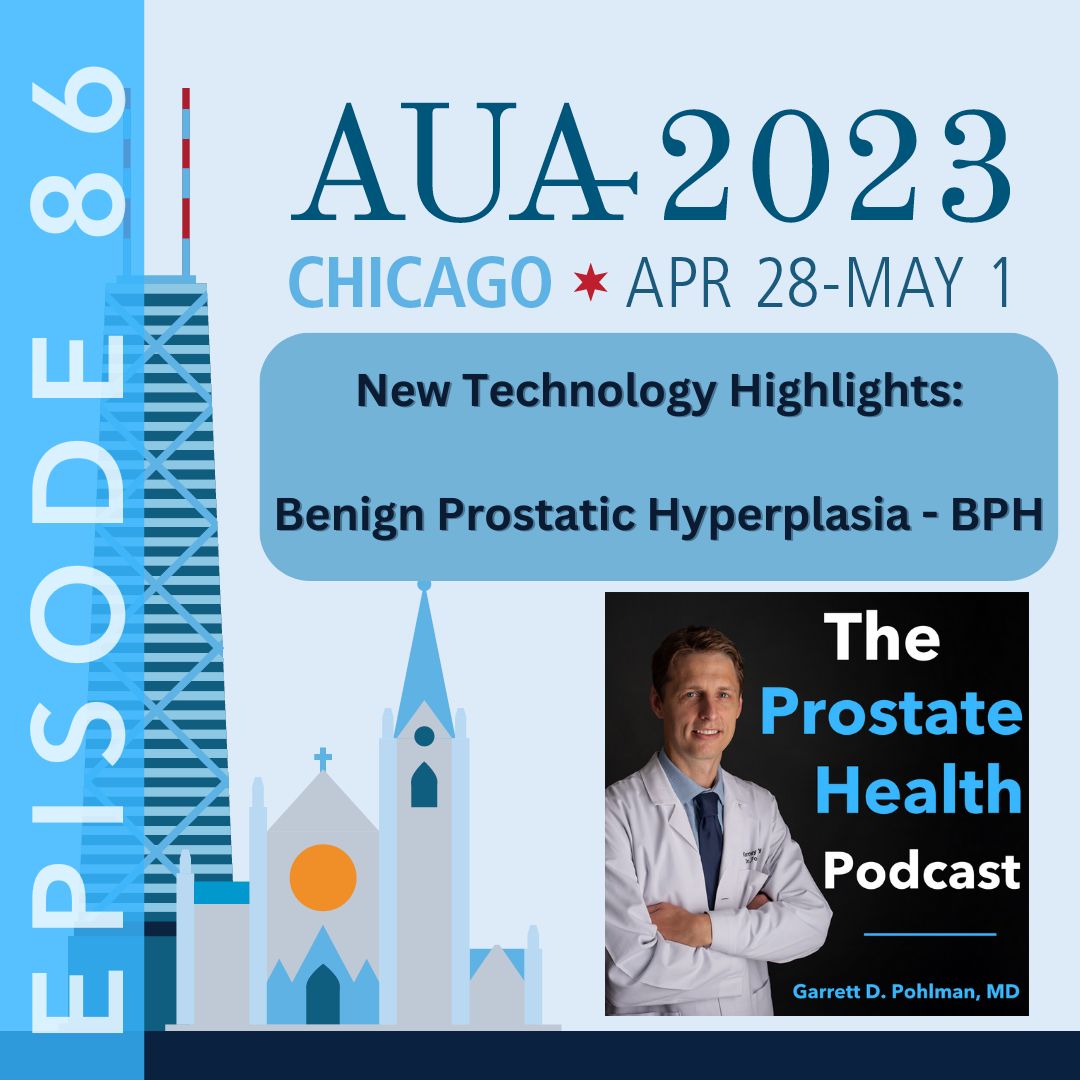
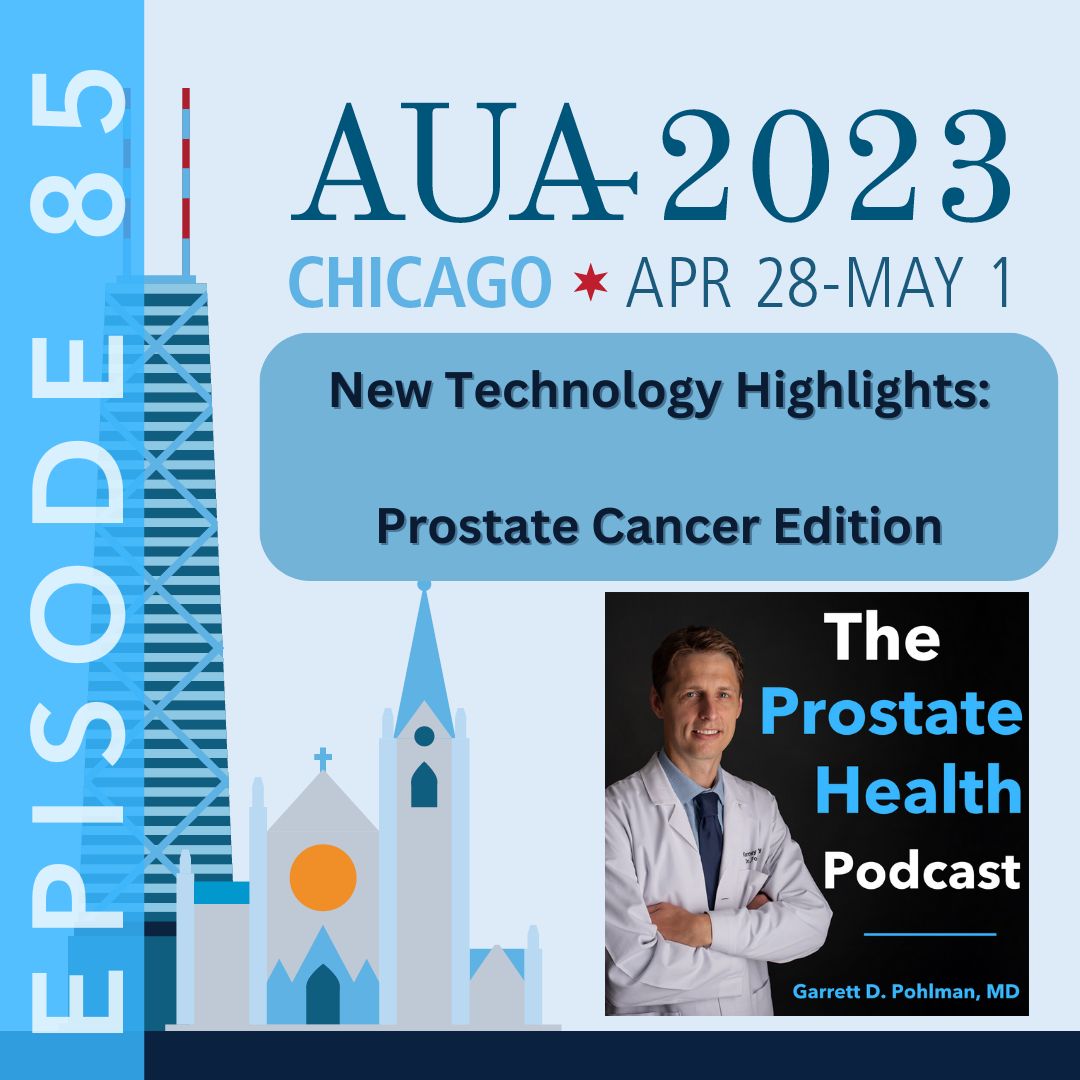
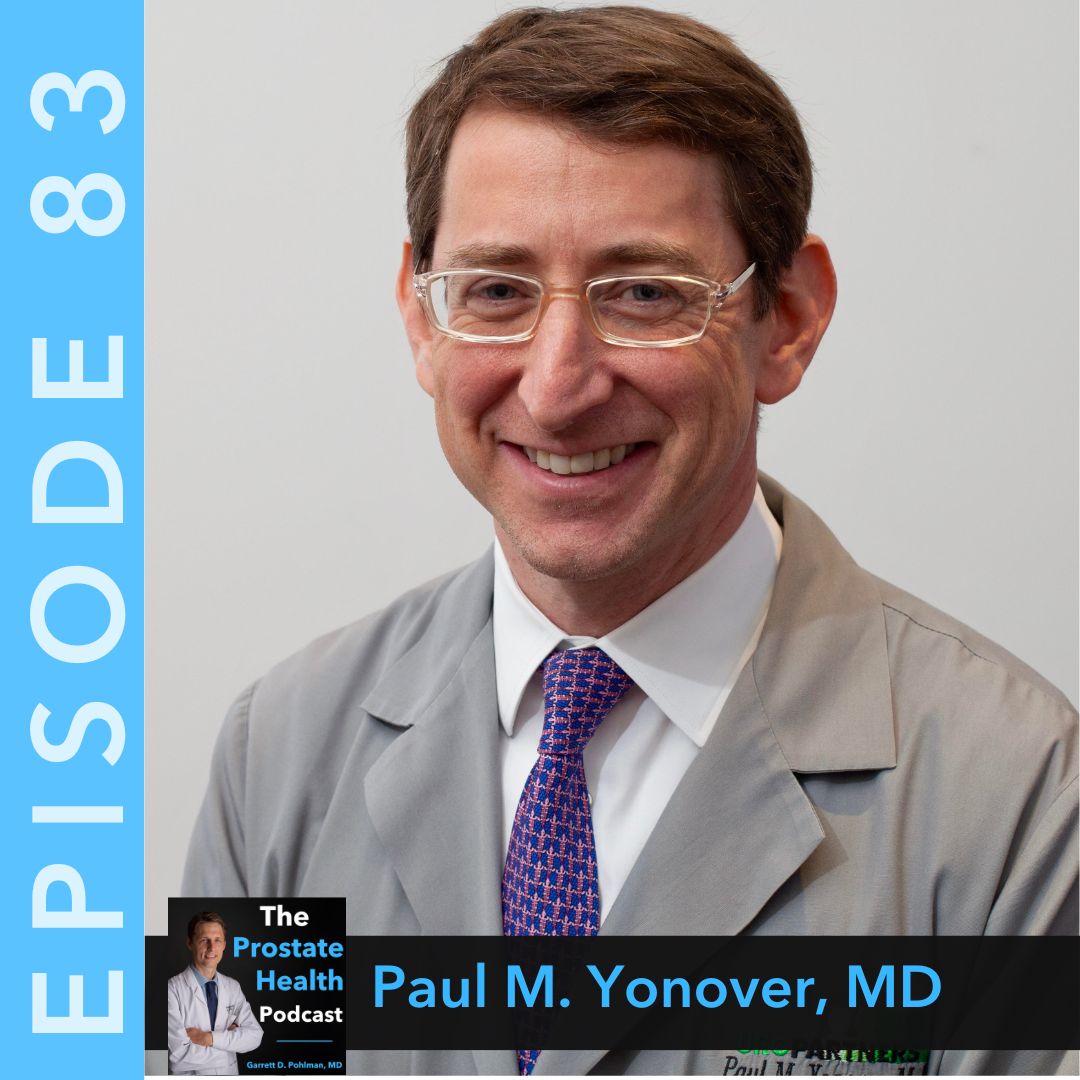
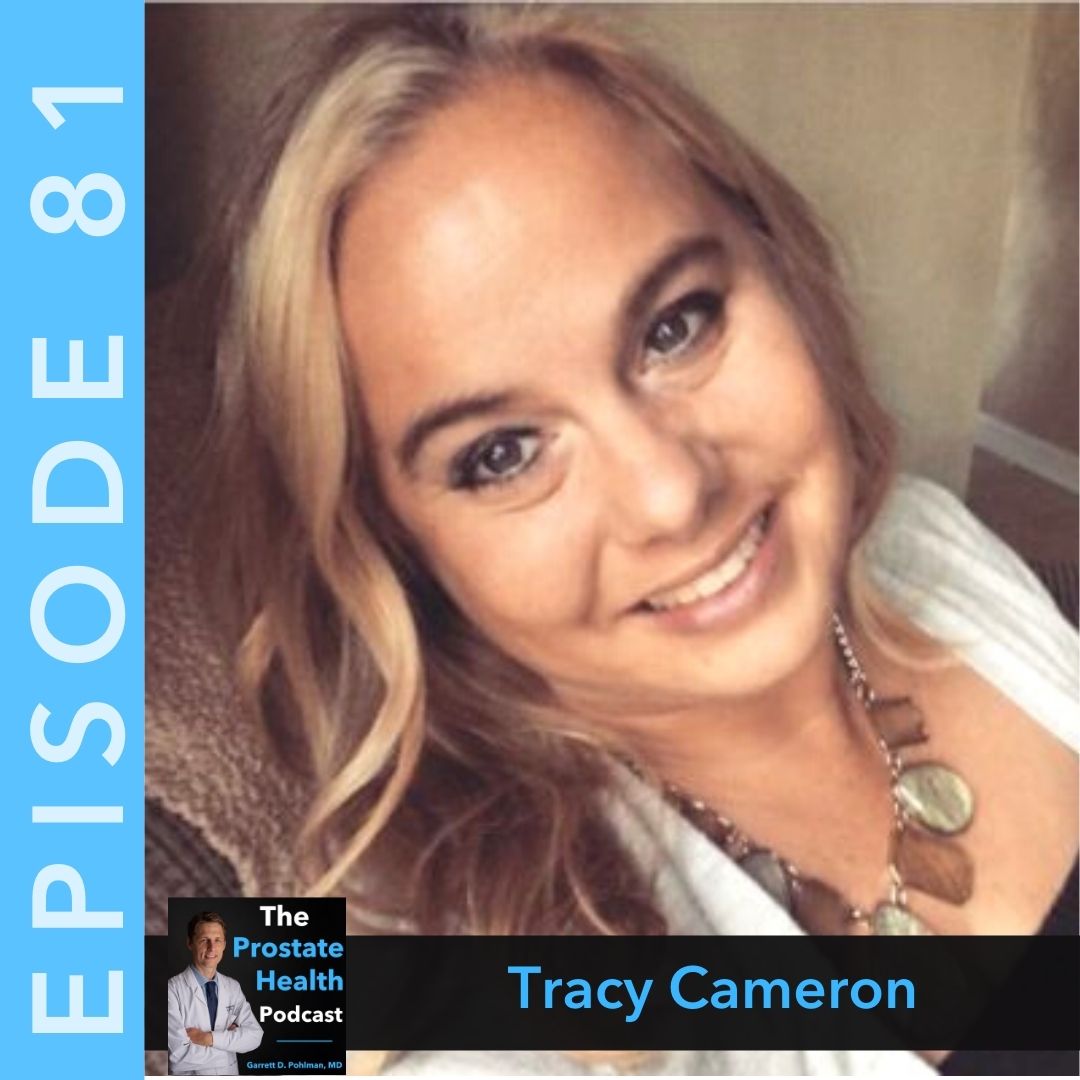
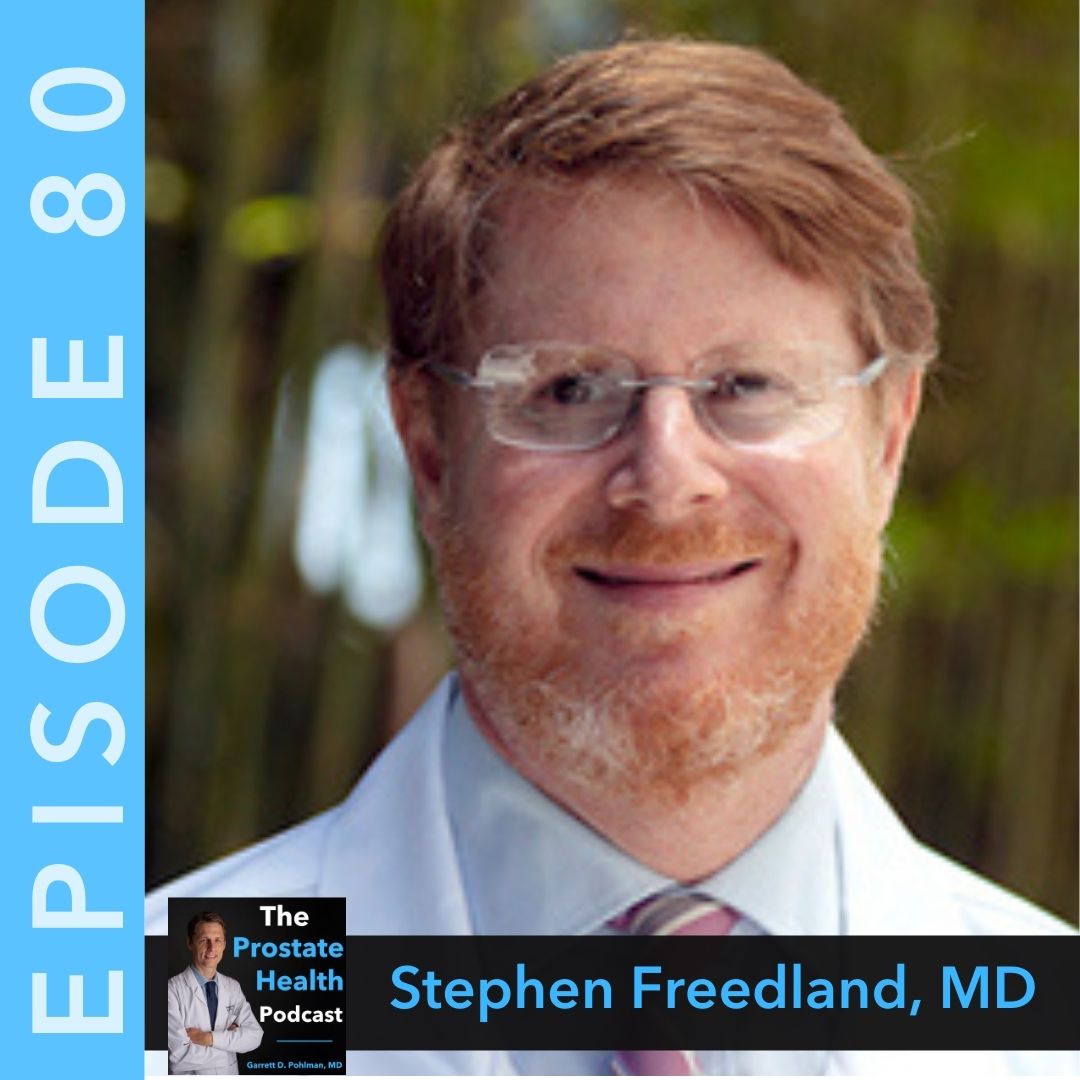
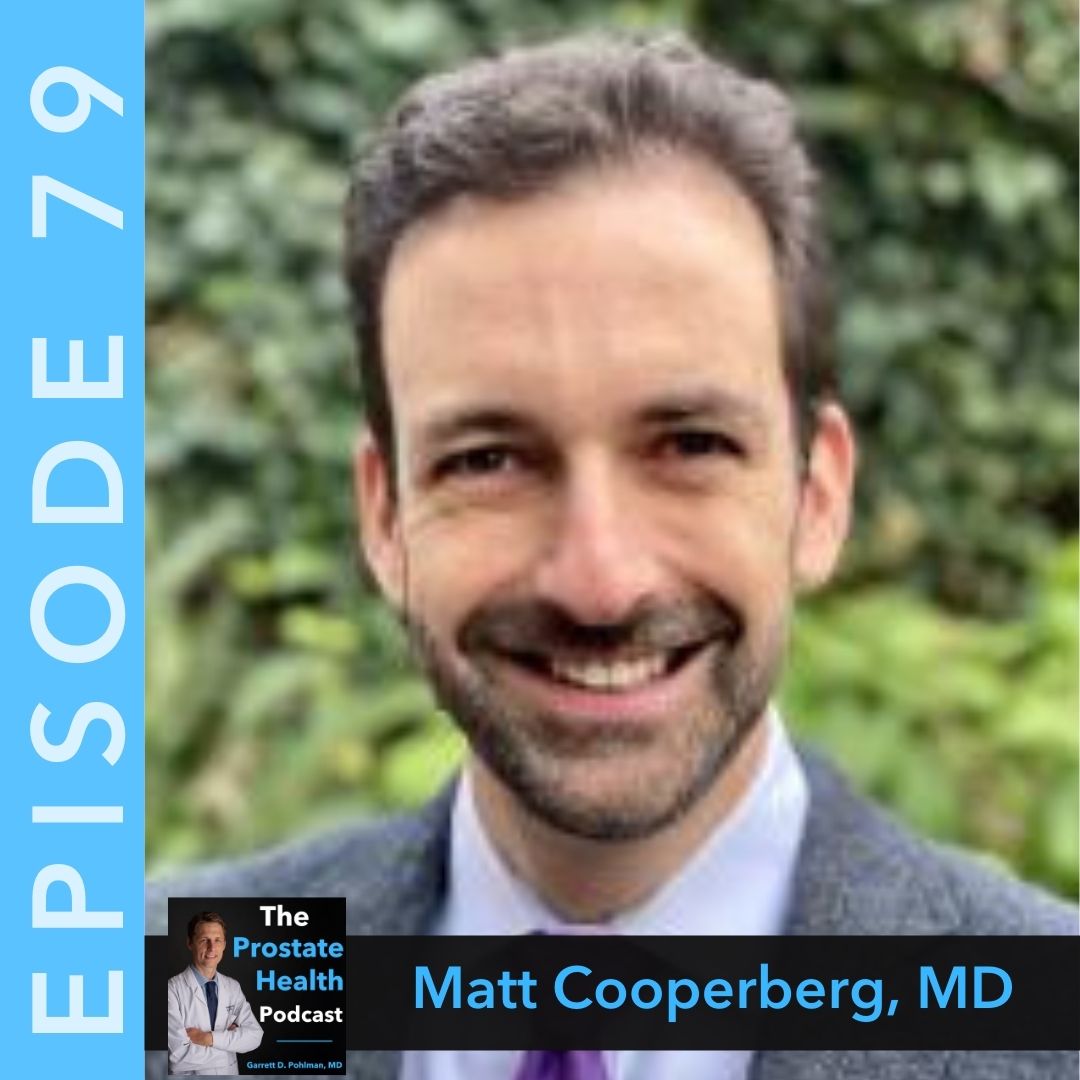
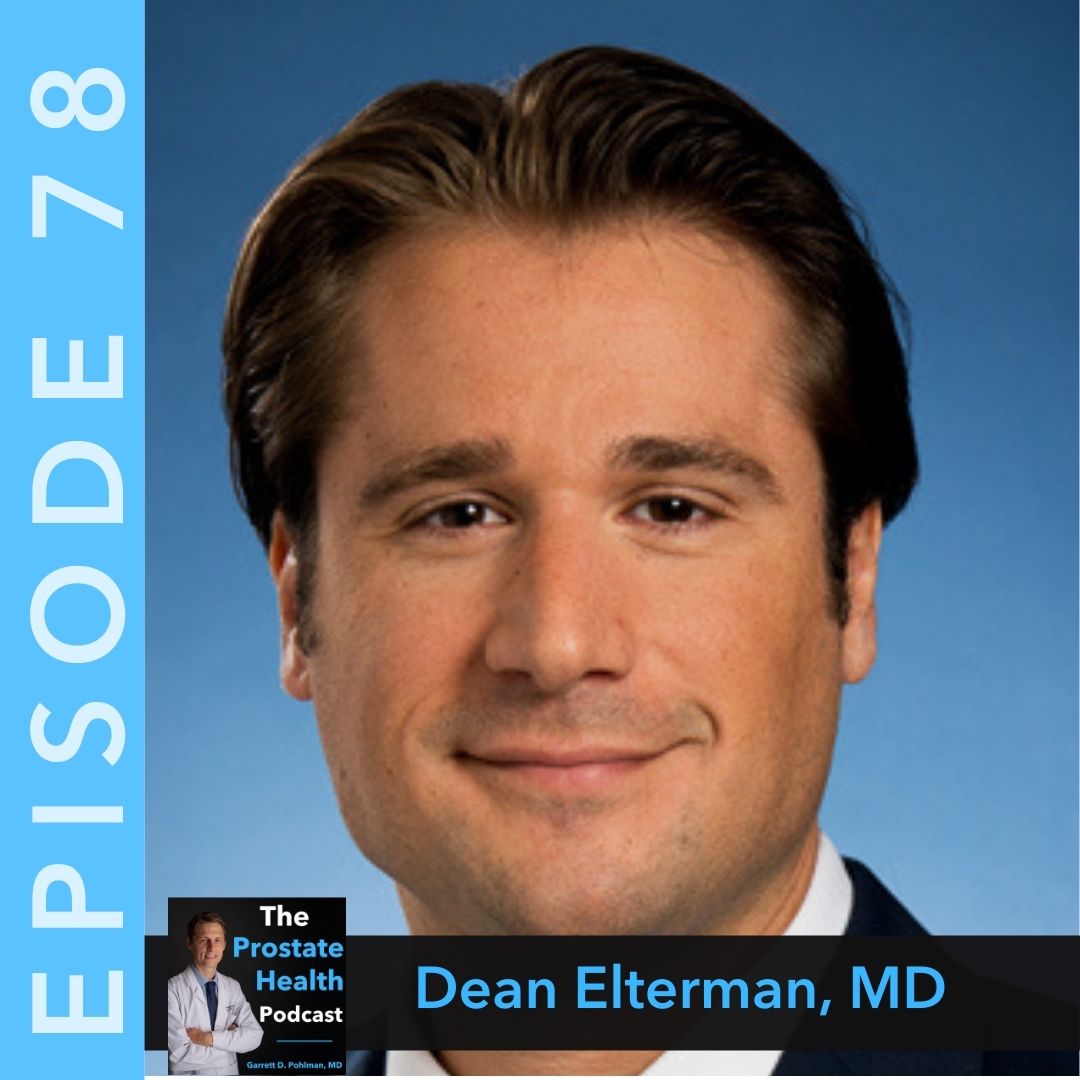
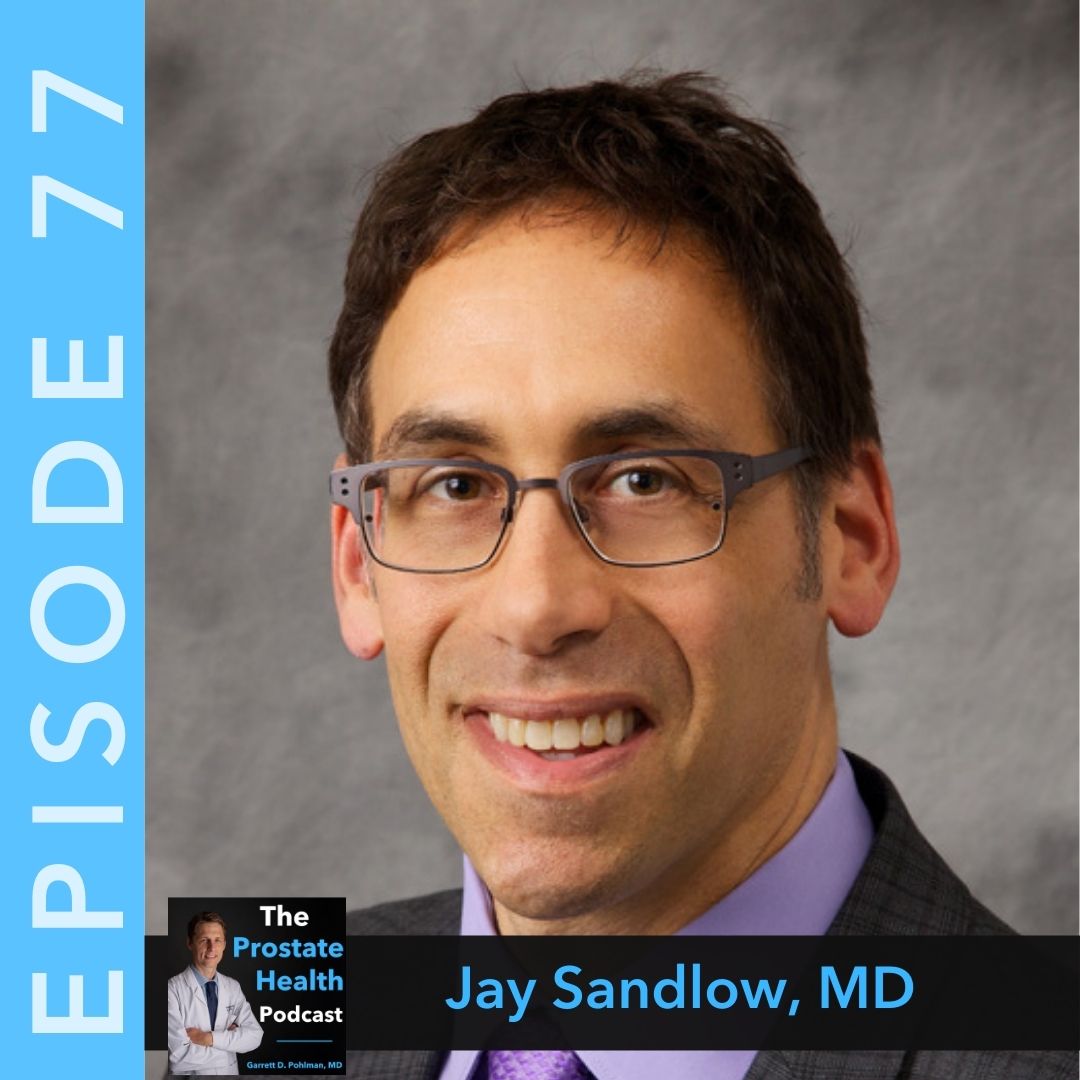
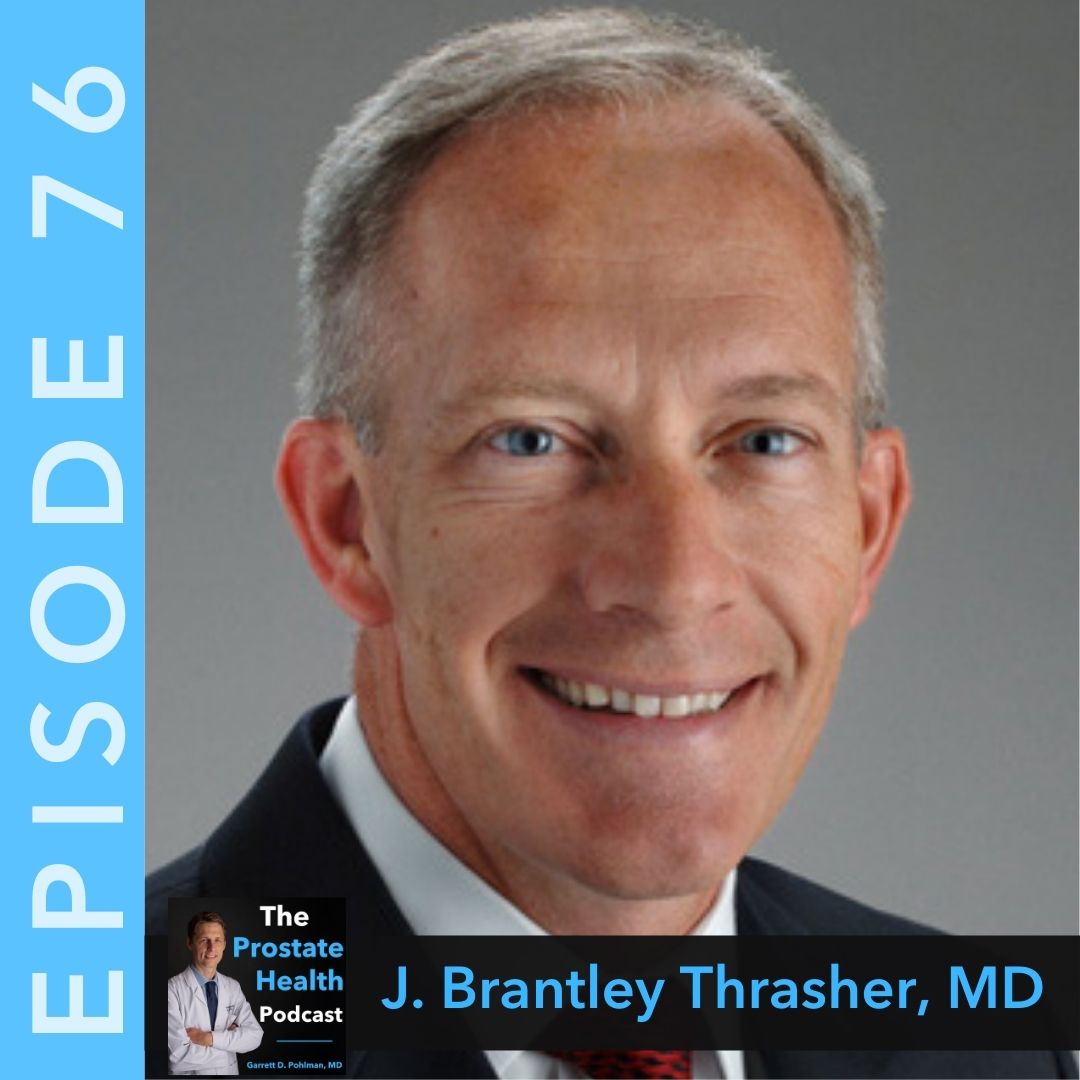
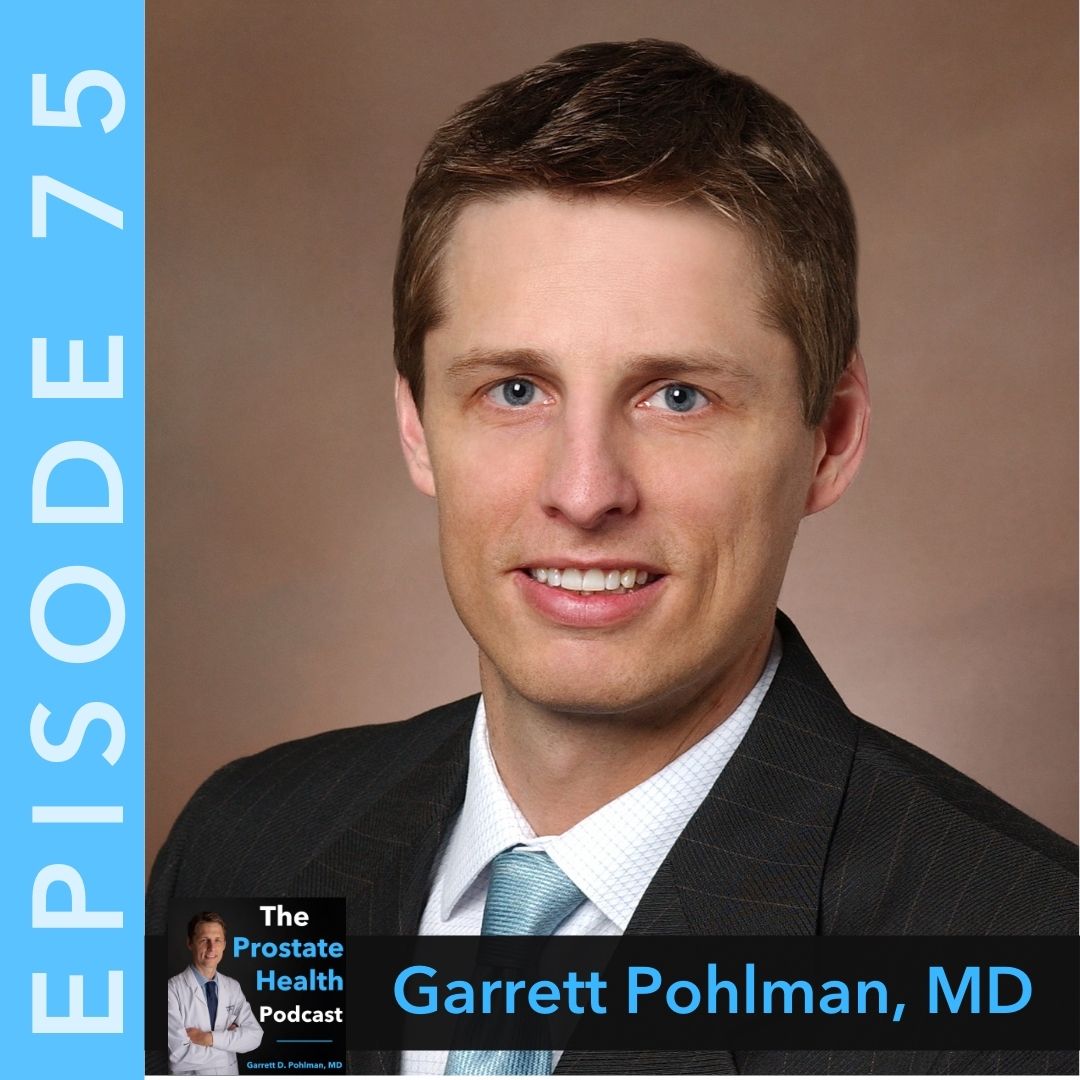
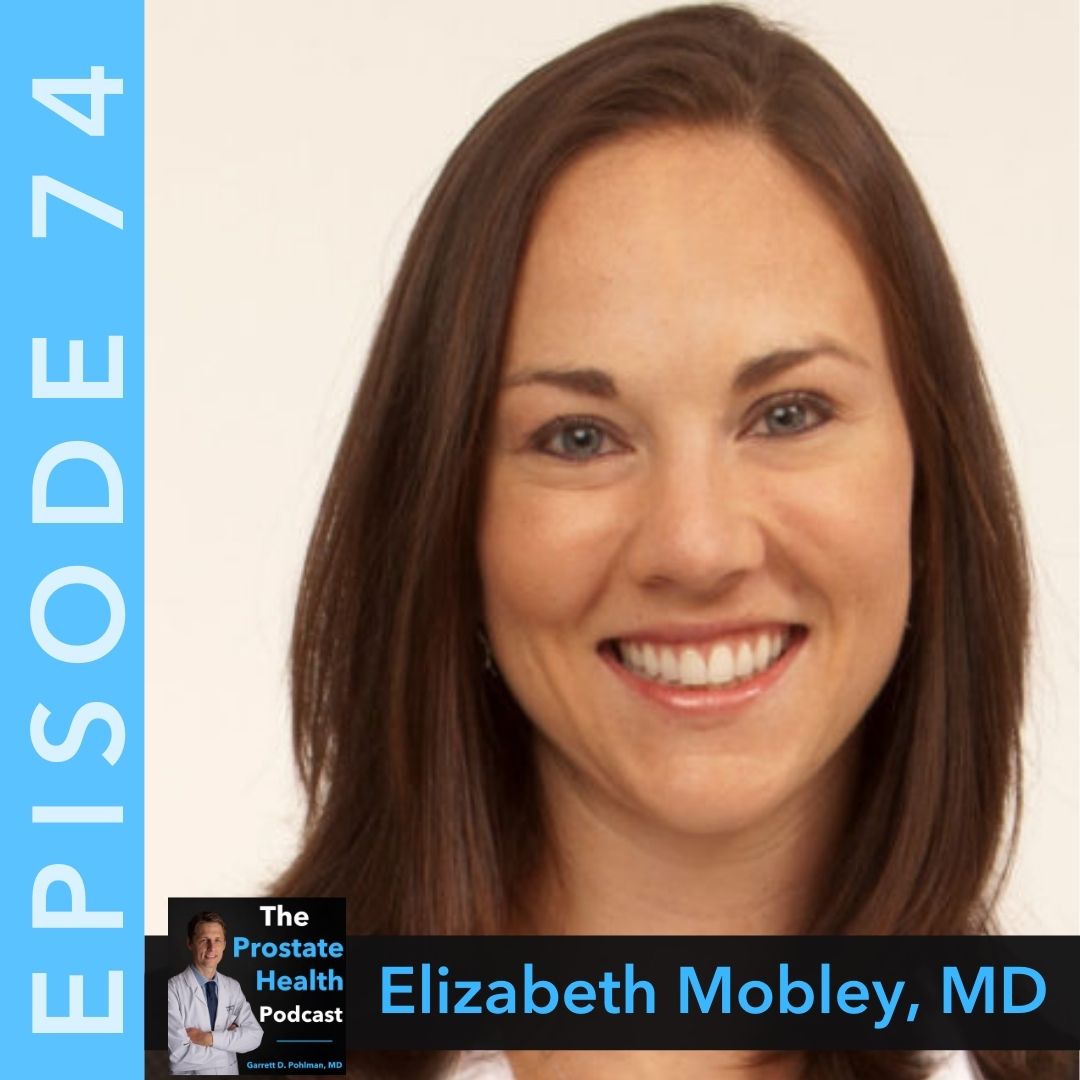
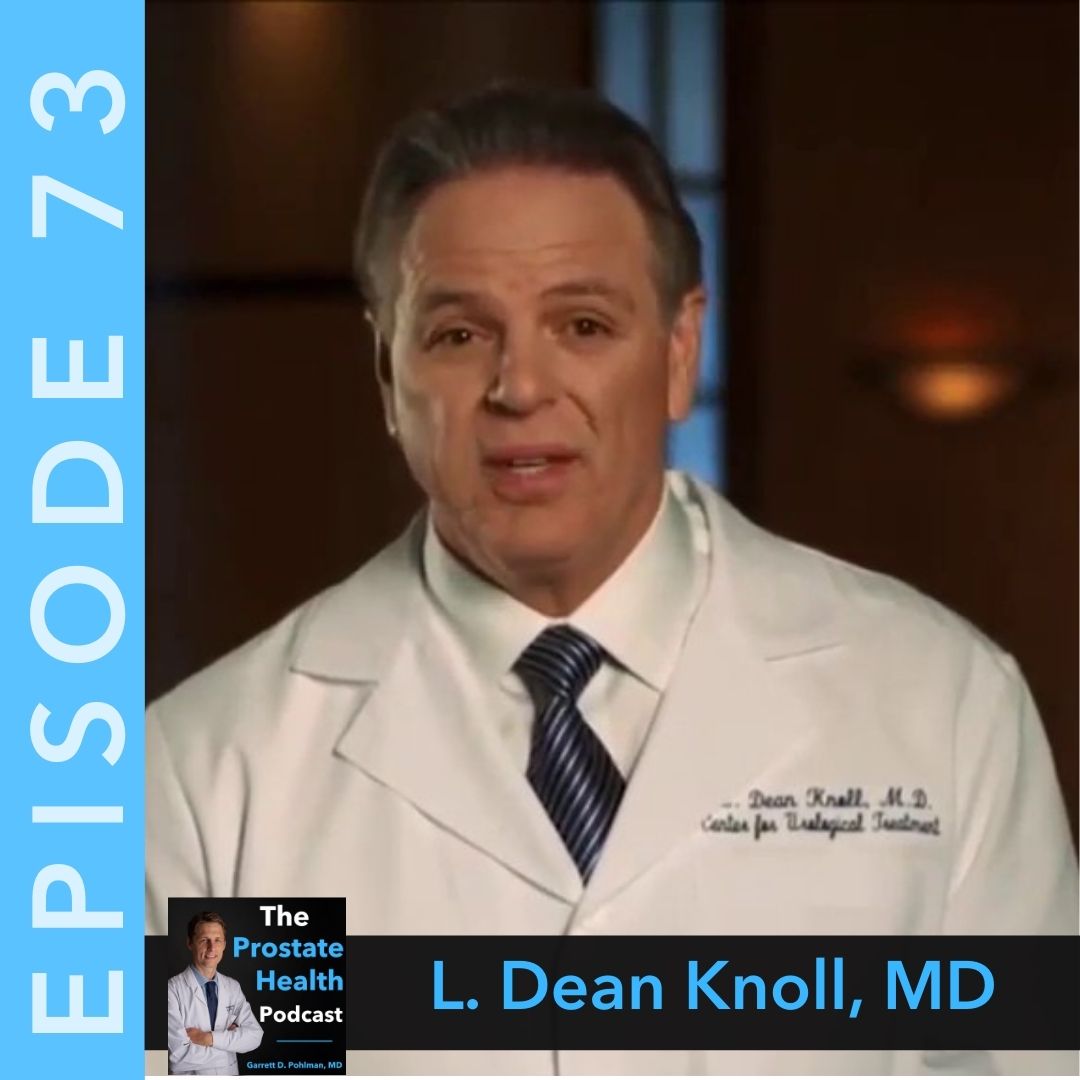
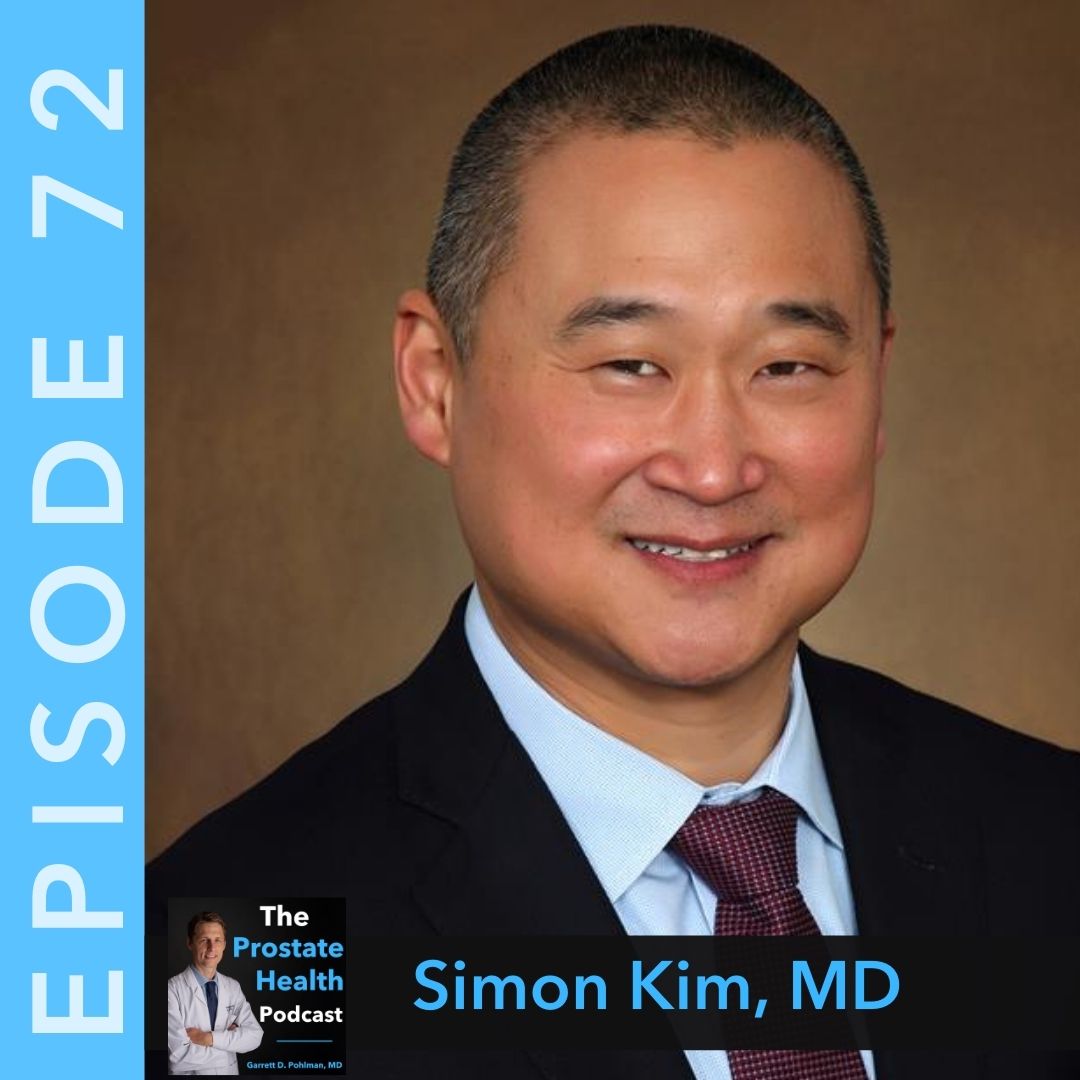
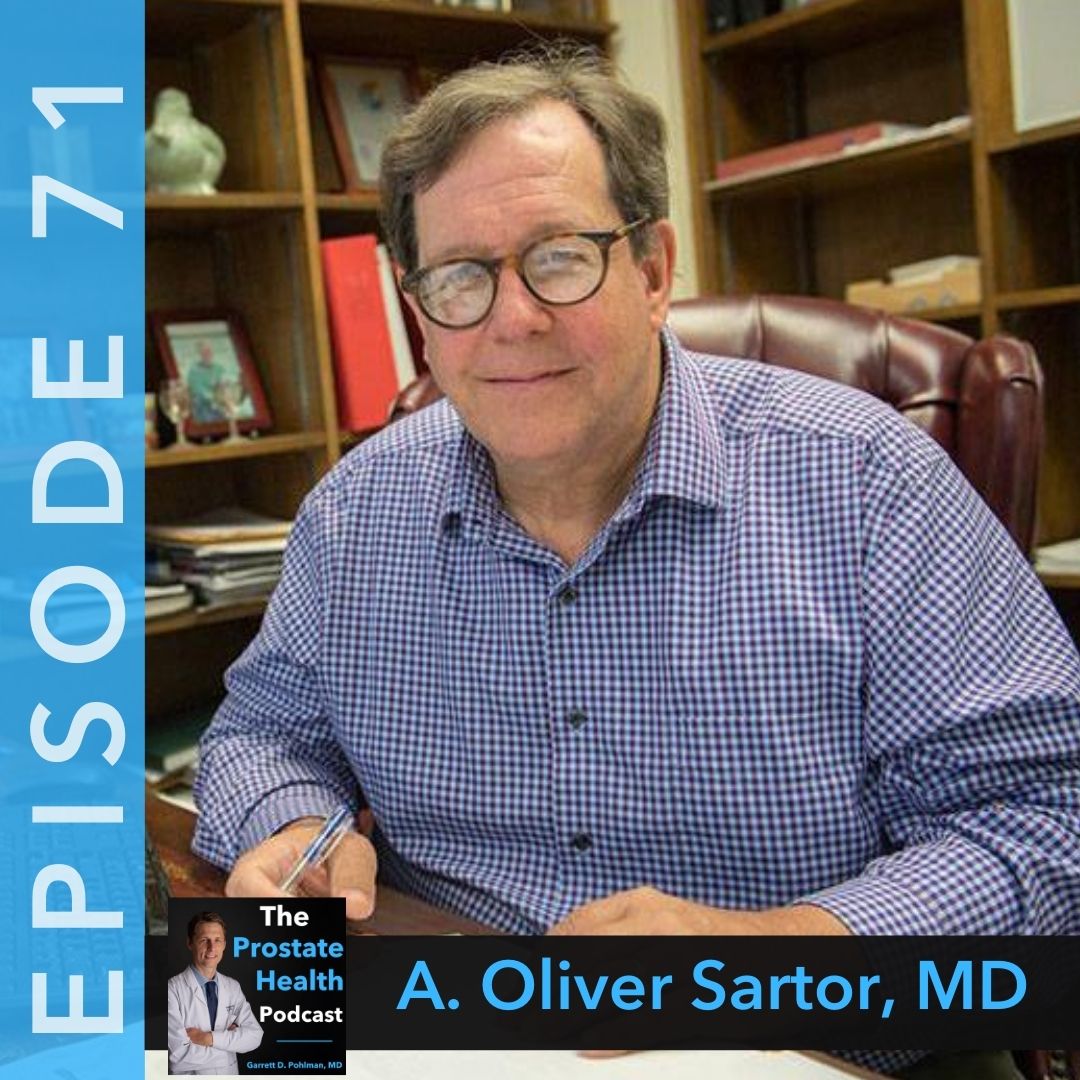
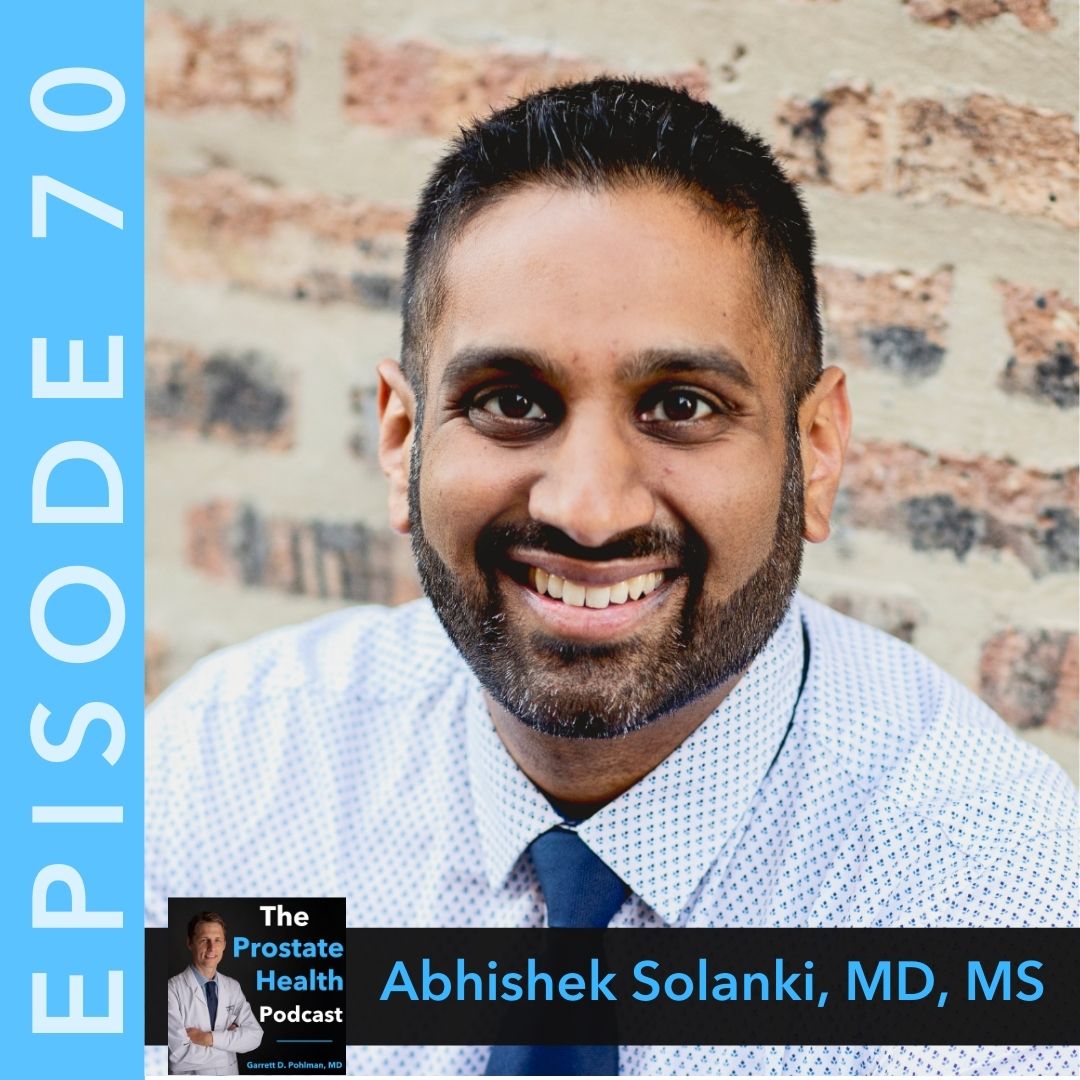
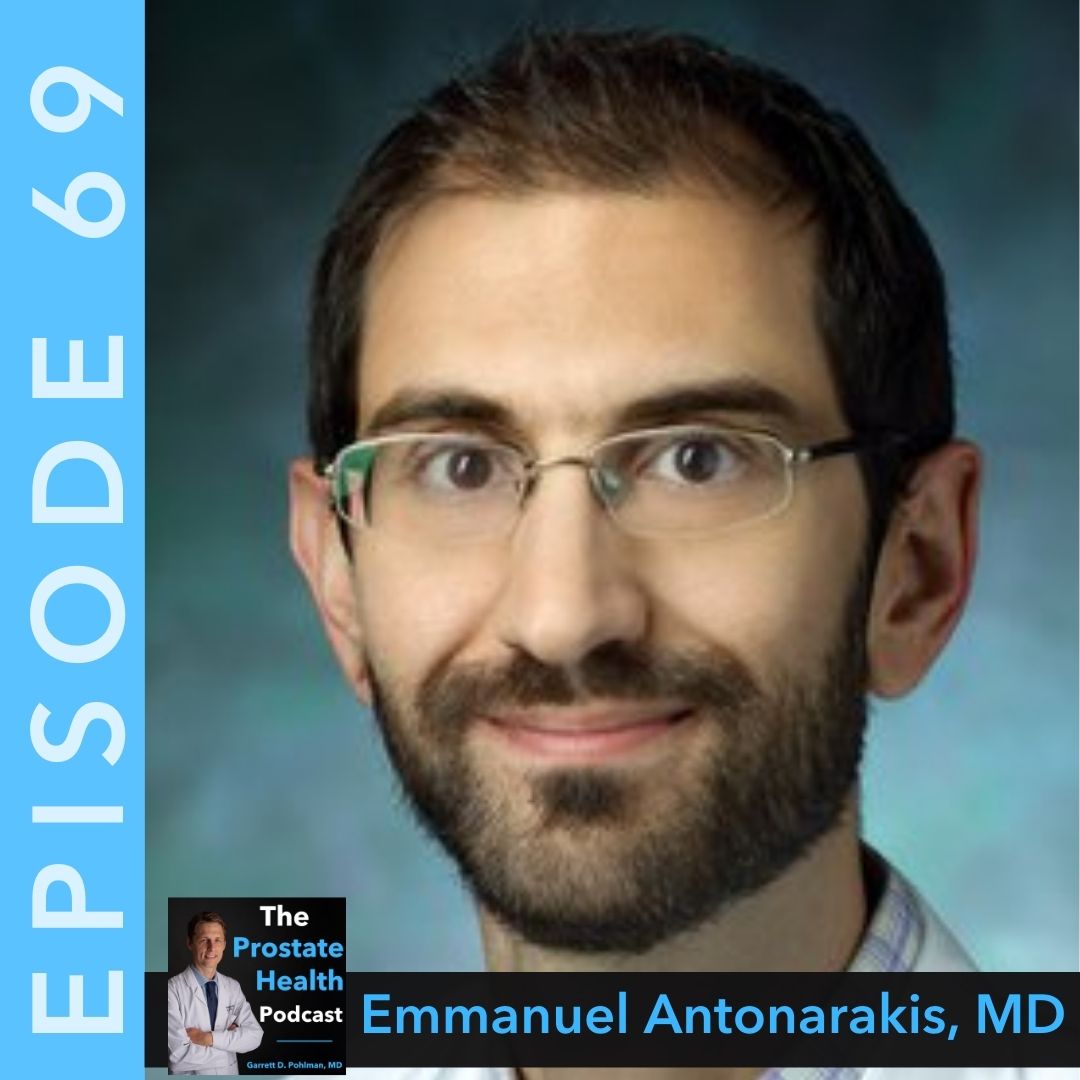
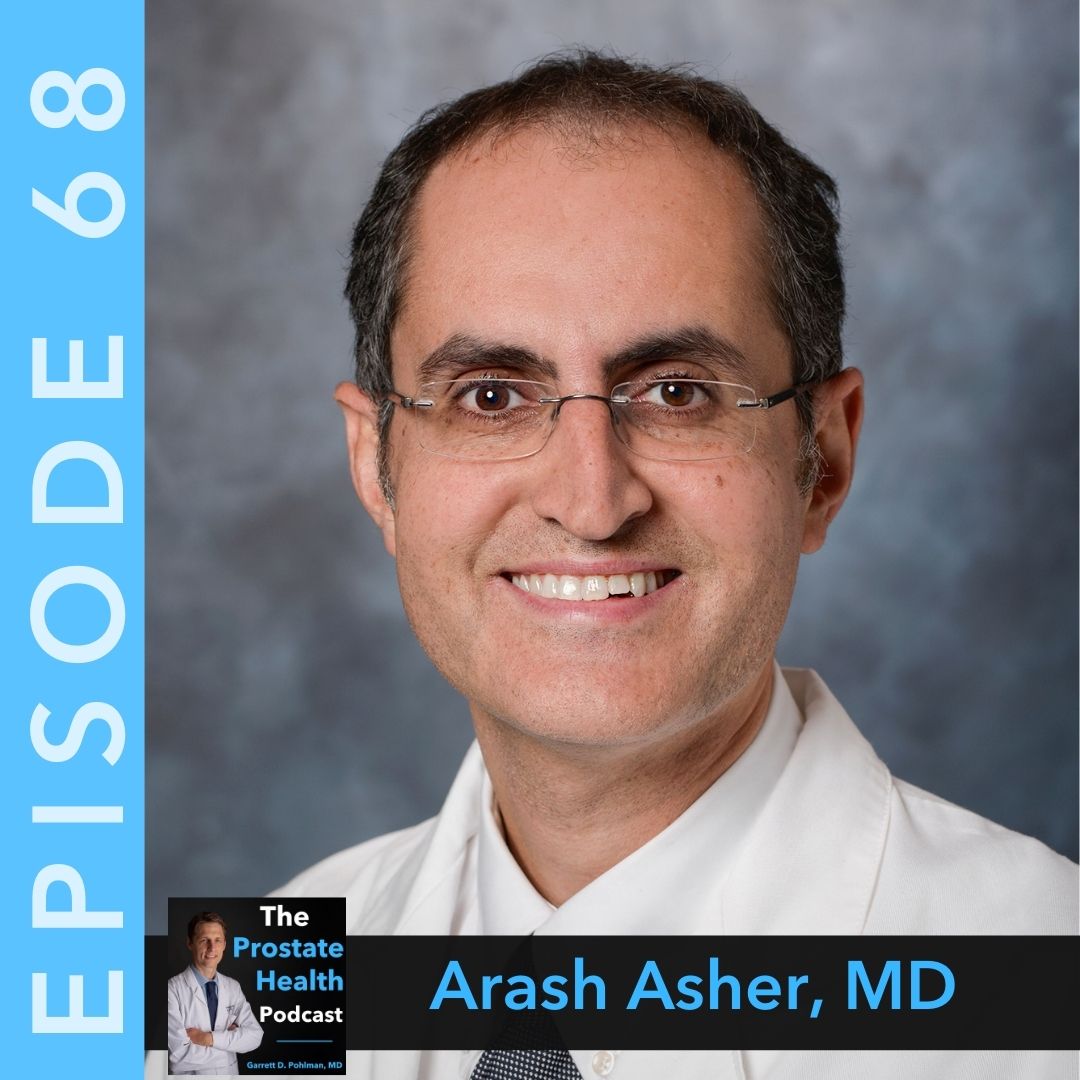
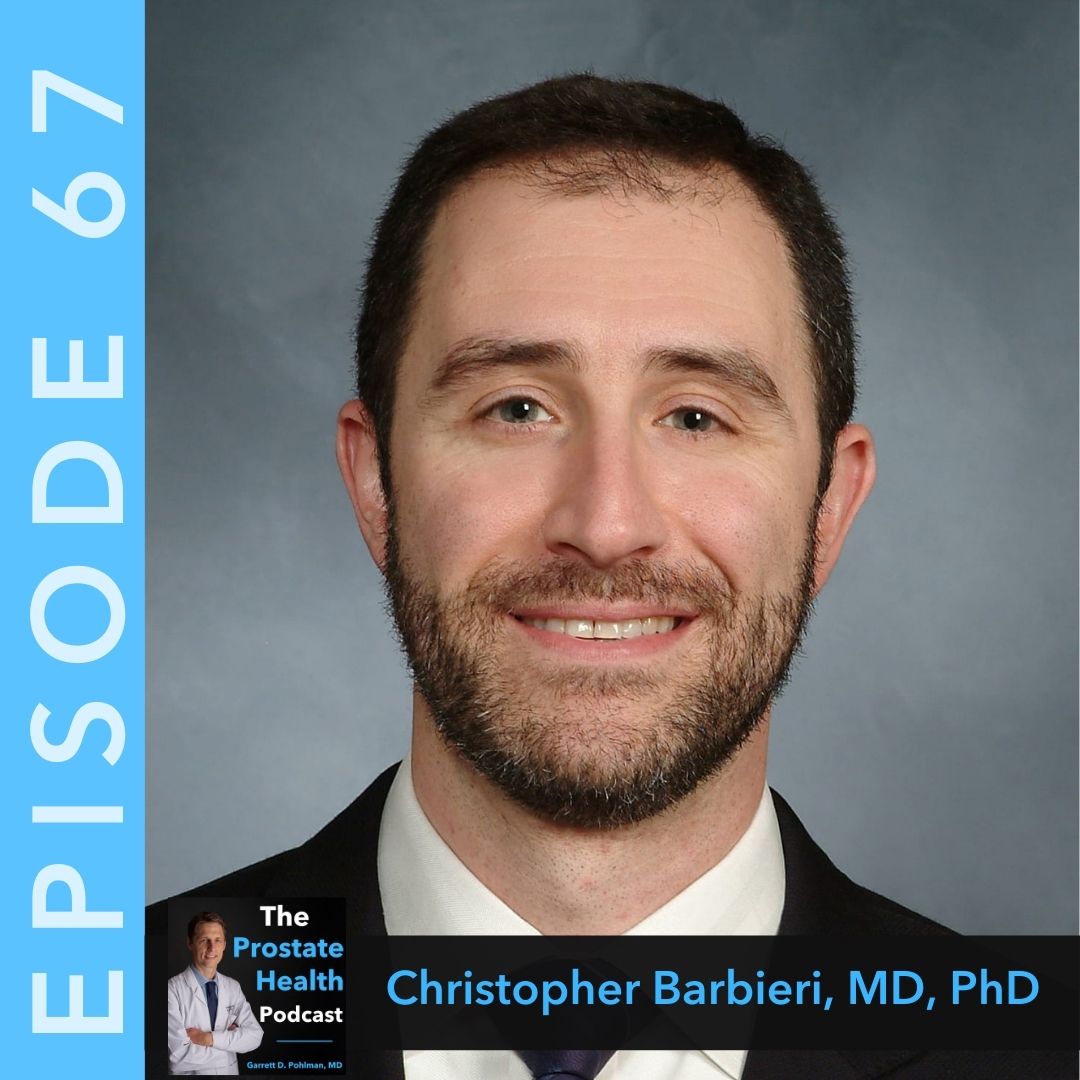
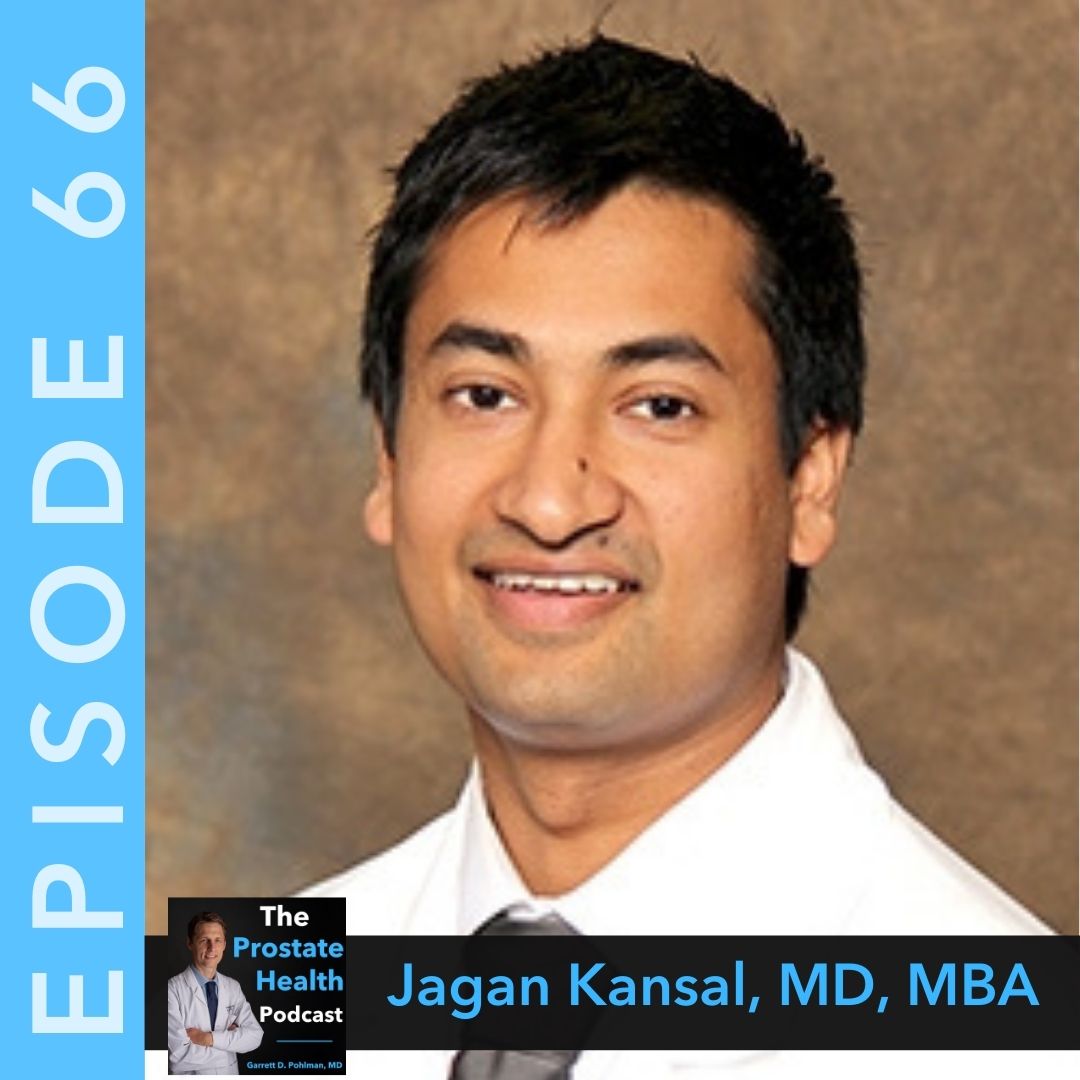
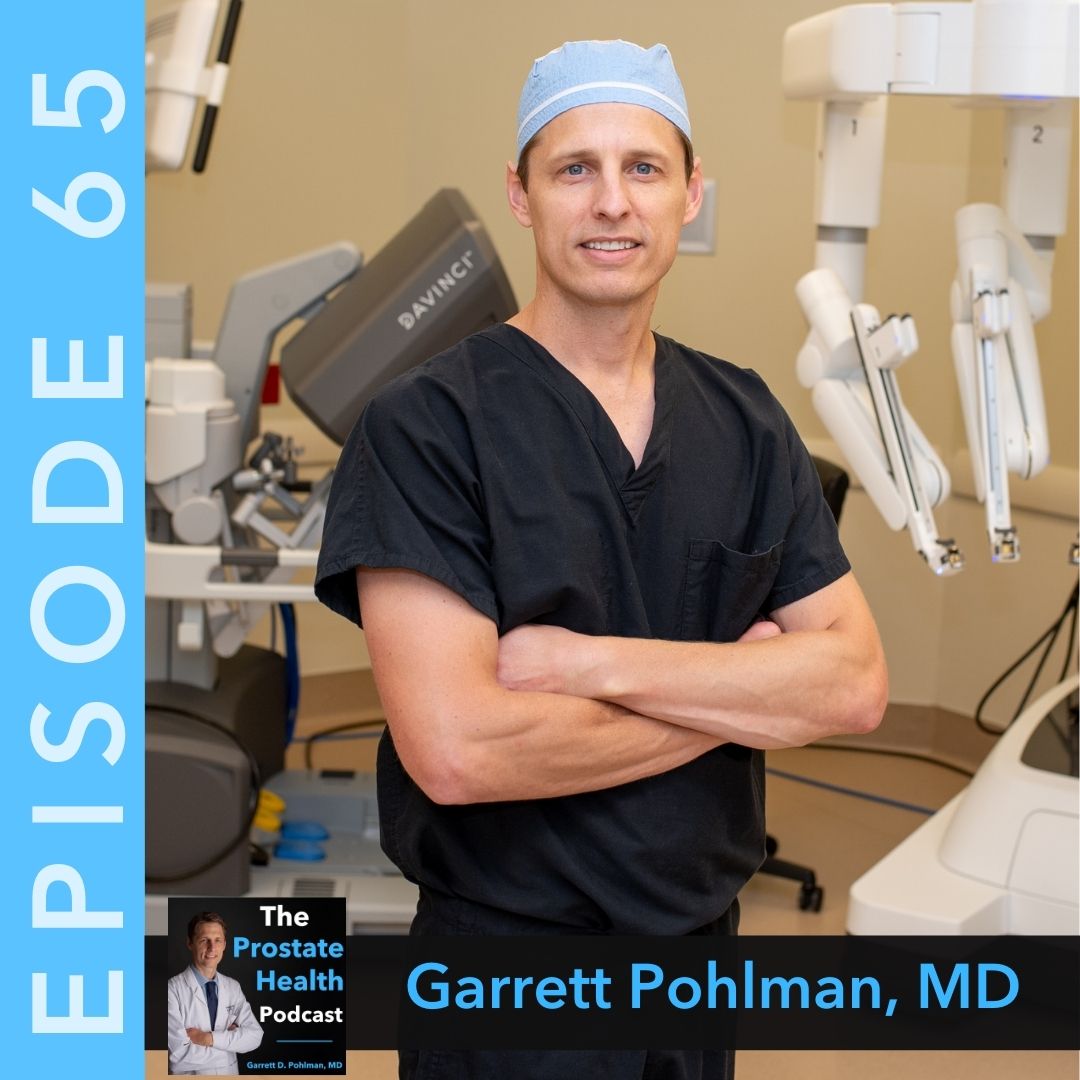



This is such an important topic – so many men avoid talking about prostate health. Thank you for creating this space! https://prostazen-prostate.com